Samsung The Frame LS03D (2024) is not just an ordinary TV that you place in the corner and forget about after two days. Right away, it’s clear that the manufacturer aimed for more than just displaying movies. First, the "Art" mode grabs attention – with just a few clicks, we can turn The Frame into a digital gallery, showcasing works that, combined with the matte screen, really resemble a real painting in a frame. Speaking of frames, we have the option to customize its colour to perfectly match our interior. Additionally, in the package, we’ll find a wall mount, which allows the TV to be hung virtually “flat”, enhancing the impression of engaging with a piece of art rather than a typical screen. The matte display provides great protection against light reflections, and paired with high brightness (650 cd/m²), it performs well even in full sunlight. On top of that, we have a VA panel with quite decent contrast and a refresh rate of 120 Hz, so watching sports or playing dynamic titles looks really smooth and pleasing to the eye. Adding to this are the gaming features – VRR, ALLM, and HGiG – indicating that Samsung also thought about console and PC fans. As a result, Samsung The Frame can serve as both a picturesque decoration for the living room and a rather sensible gaming monitor. The mentioned One Connect is another handy gadget – it allows us to hide all cables in one place, requiring only a thin cable connecting the TV to that magic box. If we like order, this is a solution designed for us. Another advantage is the Tizen system – easy to use, fast, and full of apps. While it may not have absolutely everything (e.g., the Tidal app), it still offers a wide range of options when searching for additional streaming platforms. Of course, there’s no rose without thorns. The lack of local dimming is noticeable in dark scenes, where the blacks become less distinct. We also have to remember that there’s only one HDMI 2.1 port, so if we want to connect more devices at 4K and 120 Hz, we might feel limited. Besides, the viewing angles are rather average, so it’s better if the most important viewer (that’s us) sits directly in front of the TV. For Dolby Vision lovers, it won’t be the ideal choice either, as The Frame LS03D only supports HDR10 and HDR10+. Additionally, the sound – like in most slim TVs – is average, so it’s worth considering a soundbar if we care about clearer bass and a deeper sound. Despite these weaker points, The Frame still makes a great impression. It’s striking, stylish, and versatile – suitable for both watching the latest hits and displaying reproductions of paintings on the wall. If we value an extraordinary appearance, high brightness, and want to play something with low input lag, then this model will be a perfect choice. And while it may not be the leader in cost-effectiveness nor a technological "monster" in terms of picture quality, it has something that is simply likable. It’s a piece of equipment that stands out with its unique character and can fit into any interior, attracting attention both in TV mode and digital art gallery mode.
- Matching (Score)
- Our verdict
- TV appearance
- Where to buy
- Contrast and black detail
- HDR effect quality
- Factory color reproduction
- Color reproduction after calibration
- Smoothness of tonal transitions
- Image scaling and smoothness of tonal transitions
- Blur and motion smoothness
- Console compatibility and gaming features
- Input lag
- Compatibility with PC
- Viewing angles
- TV efficiency during daytime
- Details about the matrix
- TV features
- Apps
- Playing files from USB
- Sound
Samsung The Frame LS03D vs TCL C7K / QM7K 55"-85"
Direct compare
The Frame / LS03D
C7K / Q7C / MQLED85K / C79K / C71K / QM7K

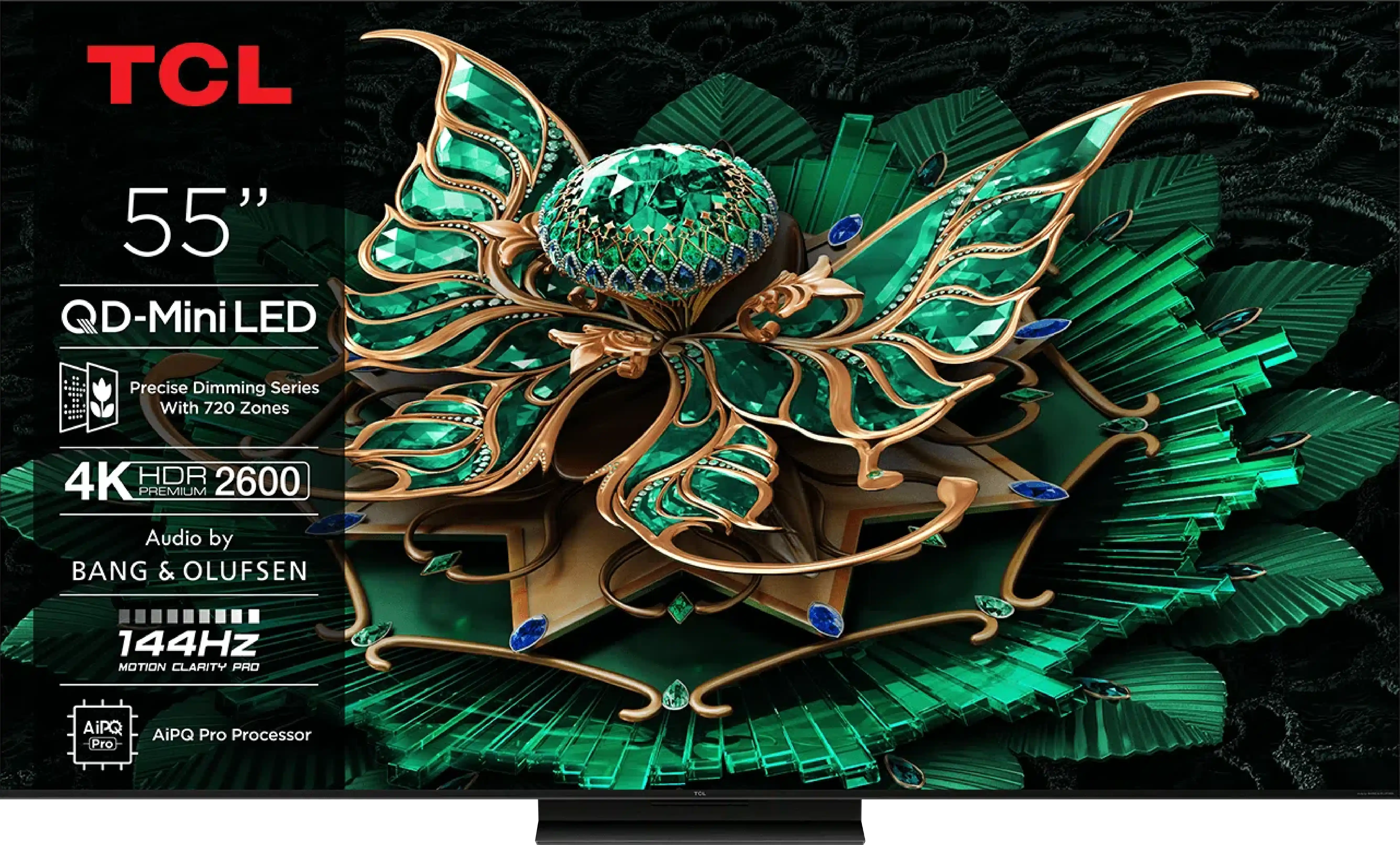
Panel type: LCD VA
Resolution: 3840x2160
System: Tizen
Model year: 2024
Complete the survey to find out the result

Panel type: LCD VA
Resolution: 3840x2160
System: Google TV
Model year: 2025
Complete the survey to find out the result

Overall rating
7.0
7.4
Movies and series in UHD quality
6.9
7.2
Classic TV, YouTube
6.5
6.9
Sports broadcasts (TV and apps)
6.2
6.8
Gaming on console
8.2
8.7
TV as a computer monitor
7.6
8.4
Watching in bright light
6.5
6.4
Utility functions
7.8
7.3
Apps
8.7
9.6
Sound quality
5.8
7.7
Complete the survey to find out what fits your preferences
Advantages
Unique design and "Art" mode – the television perfectly blends into interiors and serves as a digital picture frame
Matte screen – effectively reduces light reflections
Customisable television frames – adjusting the look to fit the interior
Dedicated wall mounts included (Value approx. AUD 400) – the television can sit almost flat against the wall
High brightness (650 cd/m²) – excellent visibility even in well-lit rooms
VA panel – decent contrast
Good motion fluidity – 120Hz*
Supports VRR, ALLM and HGiG – full package of gaming features
Smooth tonal transitions – one of the best results in this category among tested televisions
One Connect module – minimises cable clutter, ensuring tidiness
Tizen system – responsive, intuitive
*Does not apply to the 43 and 50-inch variants (60Hz)
Very good black - VA panel with a large number of Mini-LED zones
High brightness in HDR - over 1000 nits
Great for gamers - HDMI 2.1, low input lag, VRR, ALLM, etc.
Good motion smoothness - 144Hz panel
Supports multiple HDR formats: HDR10, HDR10+, Dolby Vision
Google TV operating system with access to a huge app library
Pleasant sound from built-in speakers (6.2.2) Bang & Olufsen
Disadvantages
No local dimming – affects the quality of black, especially in dark scenes
Average viewing angles – the image loses quality when viewed from a greater angle
Average sound quality – flat sound without depth
Limited number of HDMI 2.1 ports – only one port supports full 4K@120 Hz
No Dolby Vision – the television only supports HDR10 and HDR10+
Google TV can operate with minor stutters
No USB recording and PiP function
Our verdict
There are TVs that go through testing and at first glance seem to be just another "medium-range" option. The TCL C7K looks just like that - without grand claims of revolution, without ambitions to dethrone OLEDs. Yet, after spending a few days with this model, it's hard not to conclude that it's truly a successful piece of equipment. The biggest advantages? Very good picture quality at a reasonable price. MiniLED combined with a QLED filter provides vibrant colours, high brightness, and contrast that really impresses in this class. Motion in sports or games looks smooth, and the presence of HDMI 2.1 and 144 Hz refresh rate makes gaming on this model a pure pleasure. On top of that, there's the Google TV system – it offers a huge range of possibilities: from voice control, through AirPlay support, to access to all the most important apps.
Are there any drawbacks? Yes. MiniLED still has its limitations, and in the most challenging movie scenes, one can notice compromises in dimming. Google TV also doesn't always function perfectly smoothly. But these are rather minor issues that don't overshadow the overall picture – and that is really positive. It's also worth noting the difference between variants. The 50-inch version we tested can be surprising, but the 55–85 inch models perform noticeably better – they have more local dimming zones, even higher contrast quality, and better sound quality. Therefore, if you're considering purchasing the C7K, it's definitely worth reaching for the larger size.
TV appearance





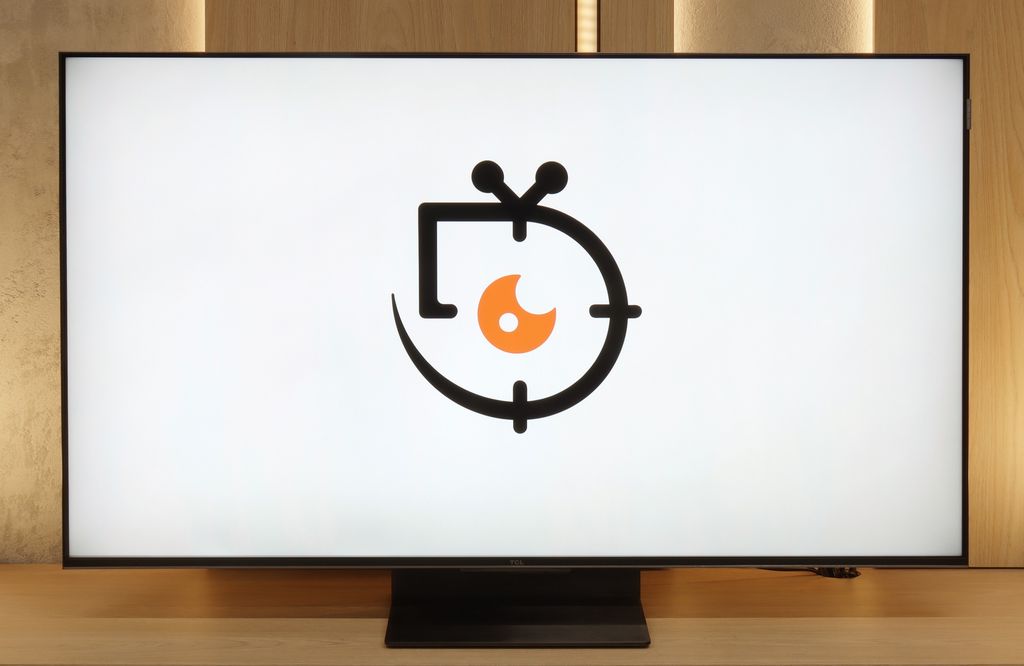
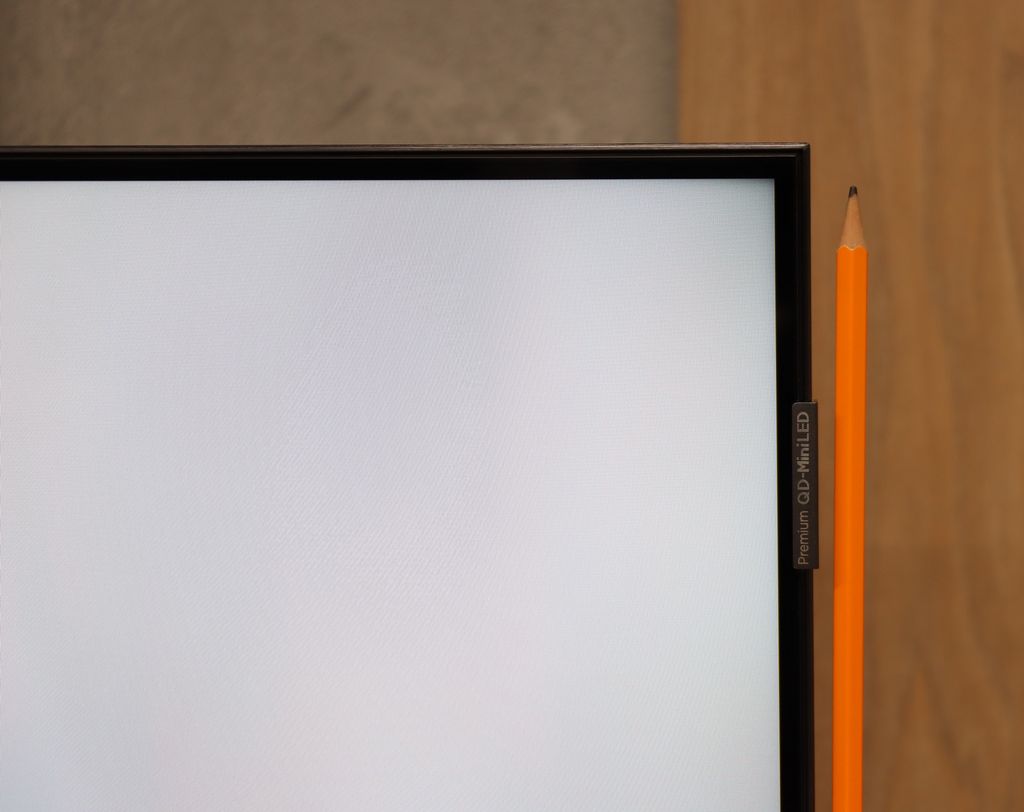
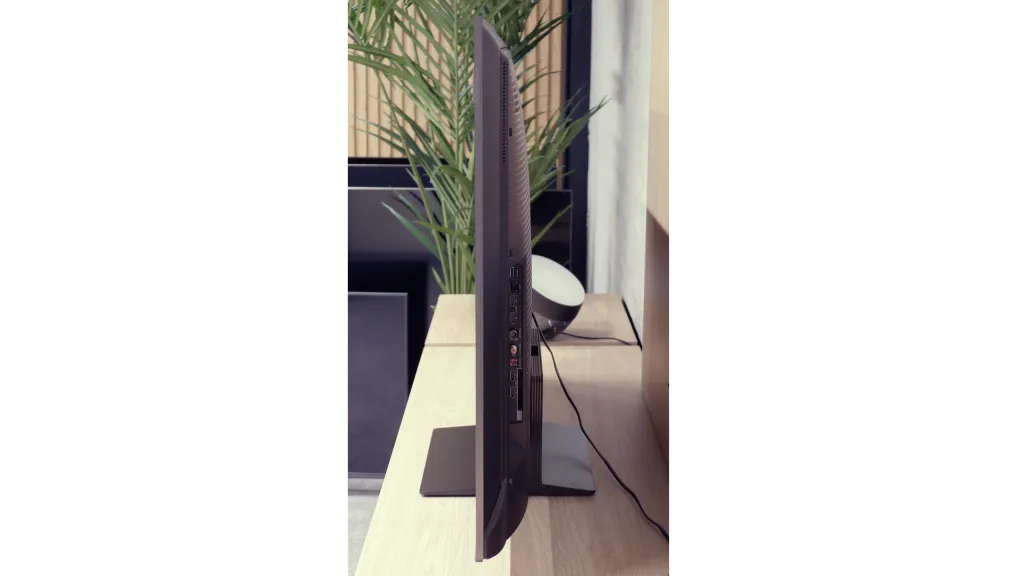
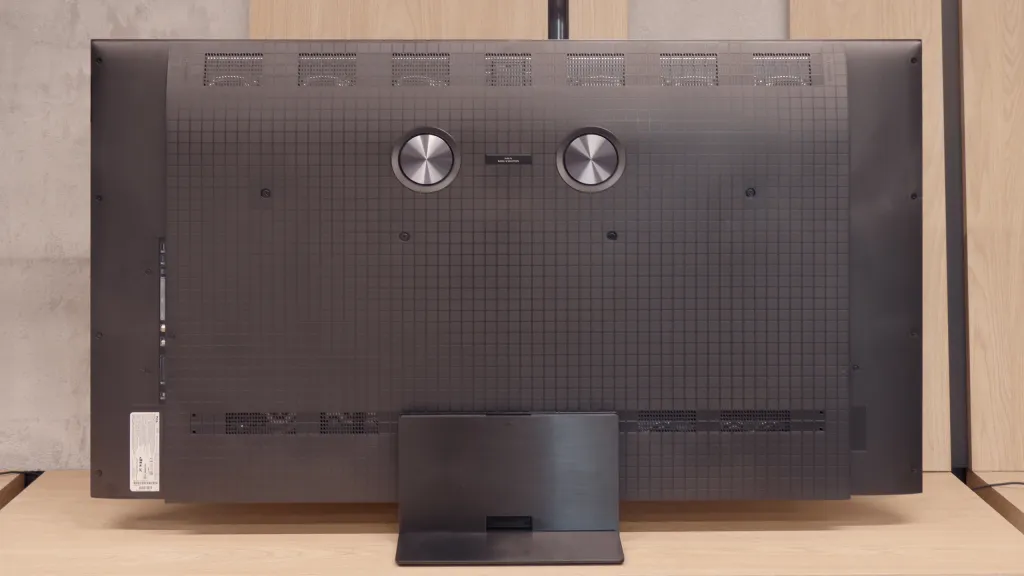
Contrast and black detail
5.6/10
8.1/10
Local dimming function: No
Local dimming function: Yes, number of zones: 1008 (42 x 24)
Contrast:
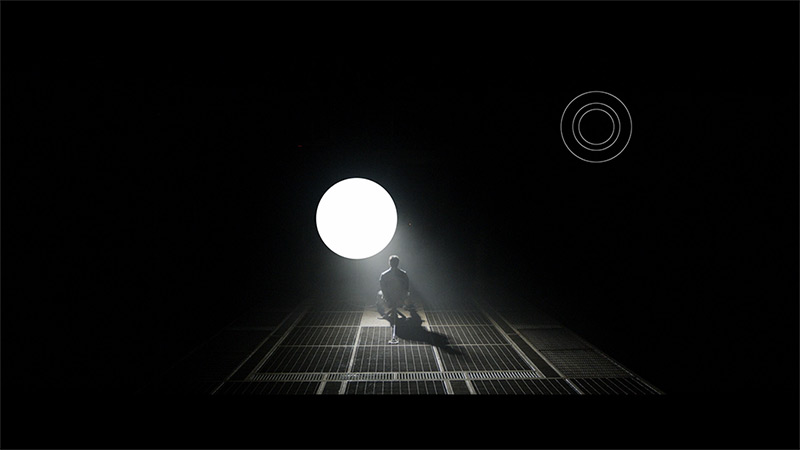
Result
4,200:1
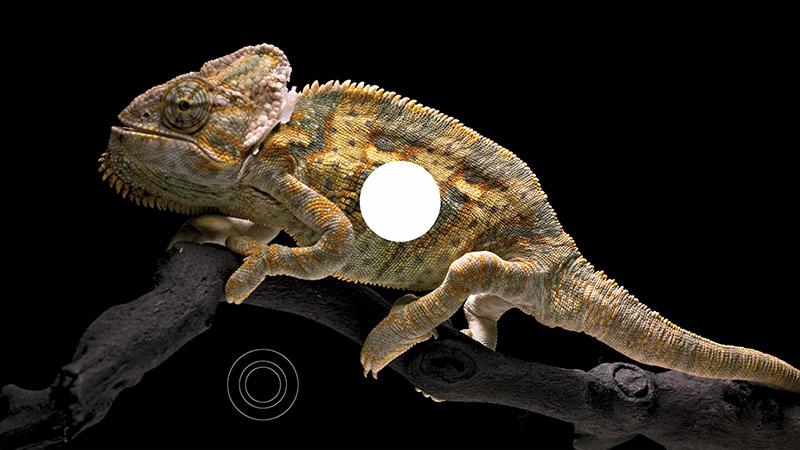
Result
4,800:1
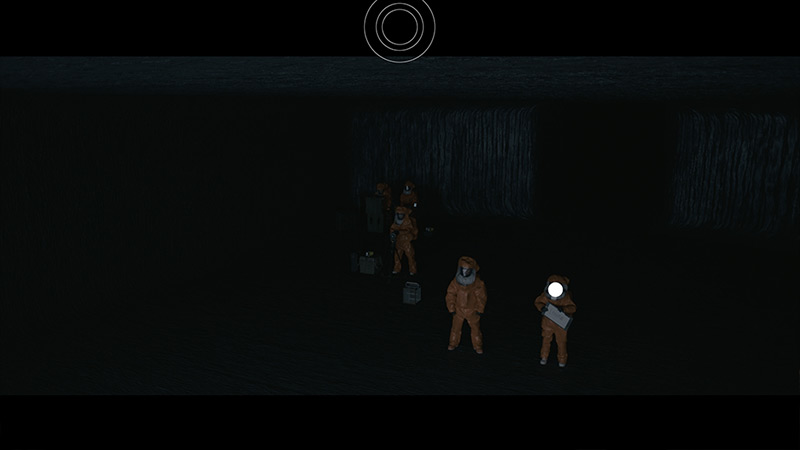
Result
5,100:1

Result
5,300:1
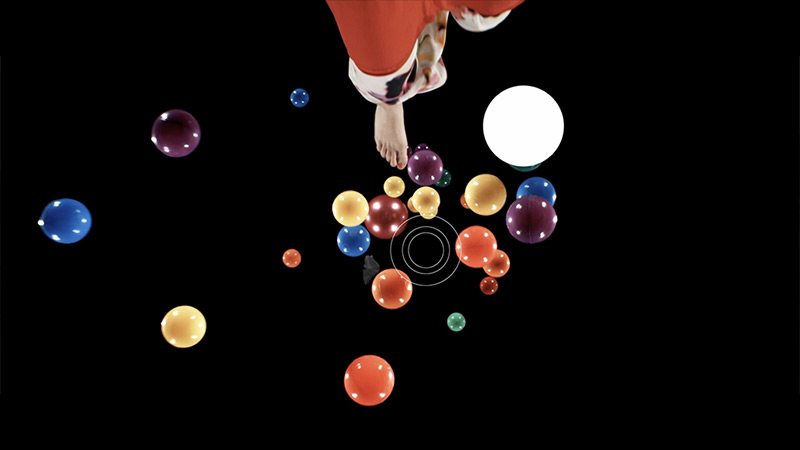
Result
3,850:1

Result
256,000:1

Result
59,850:1

Result
22,200:1

Result
16,850:1

Result
11,400:1
Halo effect and black detail visibility:

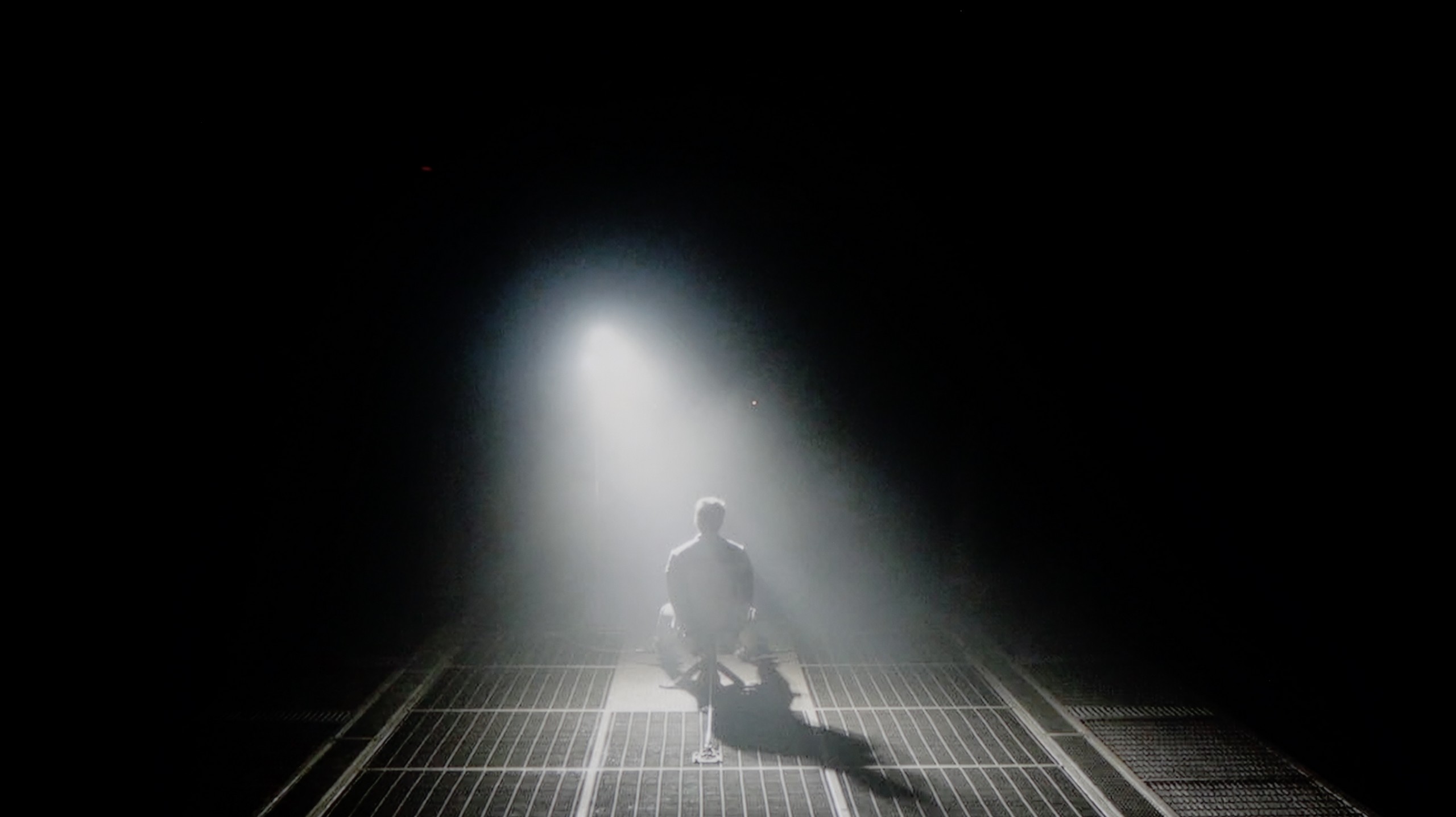
Samsung The Frame uses a VA panel, which provides quite a high contrast on its own. In our tests, the results ranged from 4000 to 5000:1, which will be perfectly sufficient for most users. However, the lack of local dimming becomes apparent, especially on more demanding test patterns. In dark scenes, it can be noticed that the black has a slight navy hue. During the day or in a well-lit room, this won't be a problem, but during an evening viewing, more demanding viewers may feel a slight dissatisfaction.
The results of the black and contrast tests in models from 55 to 85 inches are very similar, which is why in the main part of the evaluation we refer to the 65-inch version. It’s a natural phenomenon that larger sizes mean a greater number of backlight zones, and in the case of 65 inches, we counted over 1000 of them. The effect is very good – the contrast is at a high level and performs significantly better than in the smallest, 50-inch variant. Typical MiniLED limitations are still noticeable, such as the halo effect or somewhat too aggressive dimming of the image; however, here they are less perceptible than in the smaller model.
For comparison, it’s worth recalling that the 50-inch TCL C7K, despite being surprising with the use of as many as 336 dimming zones, struggled with managing the backlight in more complicated scenes – overexposures or loss of details occurred. In larger sizes, this problem doesn't disappear completely, but thanks to the greater number of zones, its impact on the perception of the image is less bothersome.
HDR effect quality
6.4/10
6.2/10
Luminance measurements in HDR:

Result
679 nit
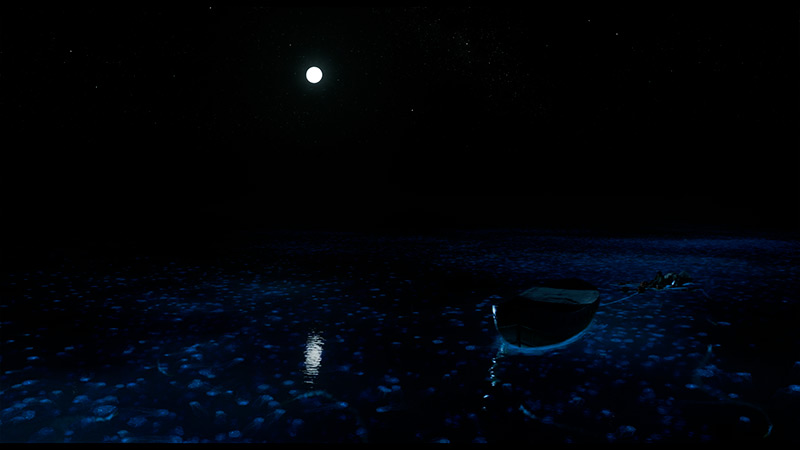
Result
663 nit
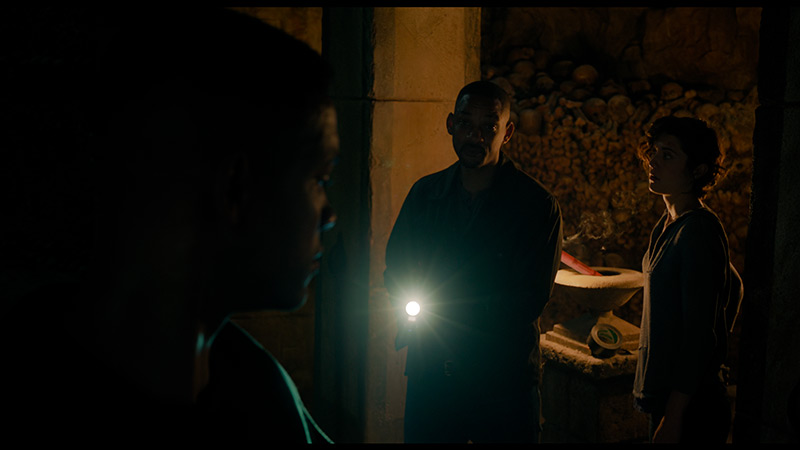
Result
712 nit
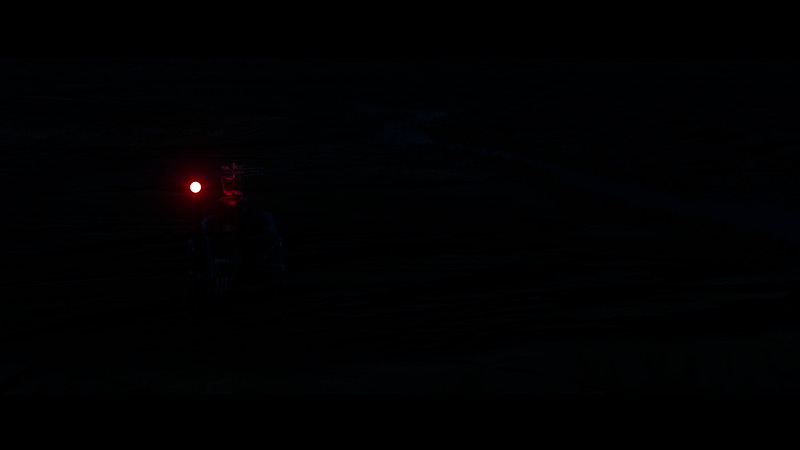
Result
698 nit

Result
726 nit

Result
1108 nit

Result
405 nit

Result
865 nit

Result
290 nit

Result
848 nit
Scene from the movie “Pan” (about 2800 nits)


Scene from the movie “Billy Lynn” (about 1100 nits)


Static HDR10


Dynamic: HDR10+
Dynamic: Dolby Vision


HDR luminance chart:
TCL C7K / QM7K 55"-85"
HDR luminance
Samsung The Frame LS03D
HDR luminance
Samsung The Frame LS03D really does well with brightness. Results at the level of 700 nits make bright elements on the screen look impressive and detailed, whether they illuminate the entire screen or appear as tiny points of light on a dark background. In more demanding scenes, like the fourth sequence from the film Sicario 2, the blacks perform moderately, but we have already discussed this in the section on contrast. However, when it comes to brightness – this television definitely holds its own. An additional advantage is the quantum dot coating, which is QLED technology. Thanks to this, the coverage of the colour palette has been improved, although The Frame does not stand out in this regard compared to the competition.
In terms of brightness, the models ranging from 55 to 85 inches in the C7K series are truly impressive. Under optimal testing conditions, the 65-inch screen exceeded 1200 nits, which in practice means that the brightest scenes can dazzle with almost cinematic brilliance. These are not just dry figures from measurements – during screenings, bright skies, explosions, or reflections of light on water looked incredibly striking, often giving the impression that the television exceeds its price range. This is particularly effective in scenes with large areas of illumination, where the screen fills with intense brightness – for instance, in sun-drenched shots or during dynamic action sequences. Viewers looking for strong HDR will definitely be satisfied.
However, scenes that require precise backlight control – with tiny points of light against a dark background – prove to be more challenging. Here, the C7K, despite having over a thousand zones, can still dim brightness to maintain deep blacks. The effect is that in films like Sicario 2 or LIFE of Pi, some details, such as a distant lighthouse or single reflections, may appear less distinct or blend into the surroundings. This is a compromise inherent in MiniLED technology – it provides excellent image depth and blacks at a level not offered by standard LCDs, but this comes at the cost of limited visibility of the tiniest lights.
Factory color reproduction
7/10
6/10


Factory Mode
After calibration
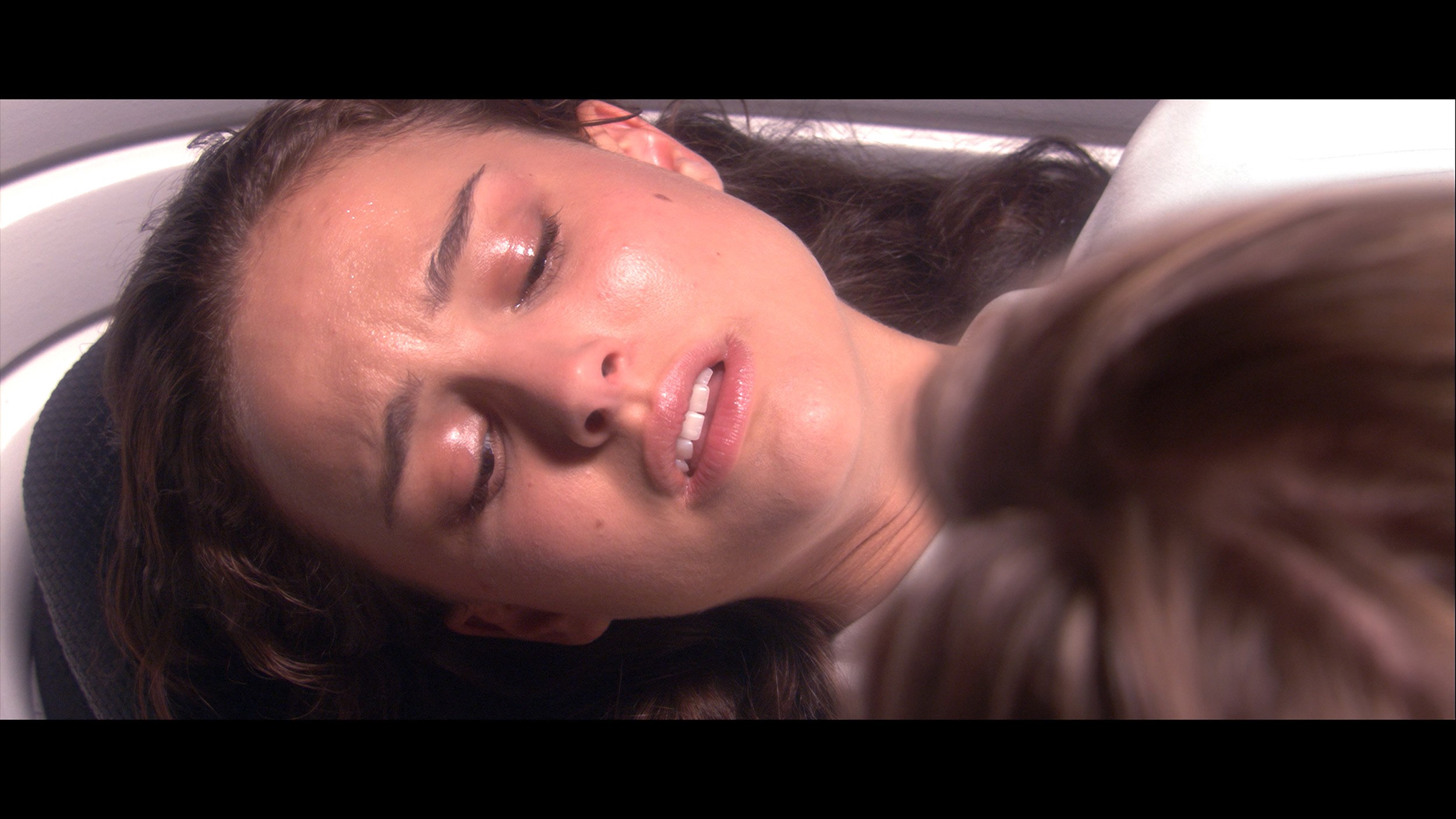
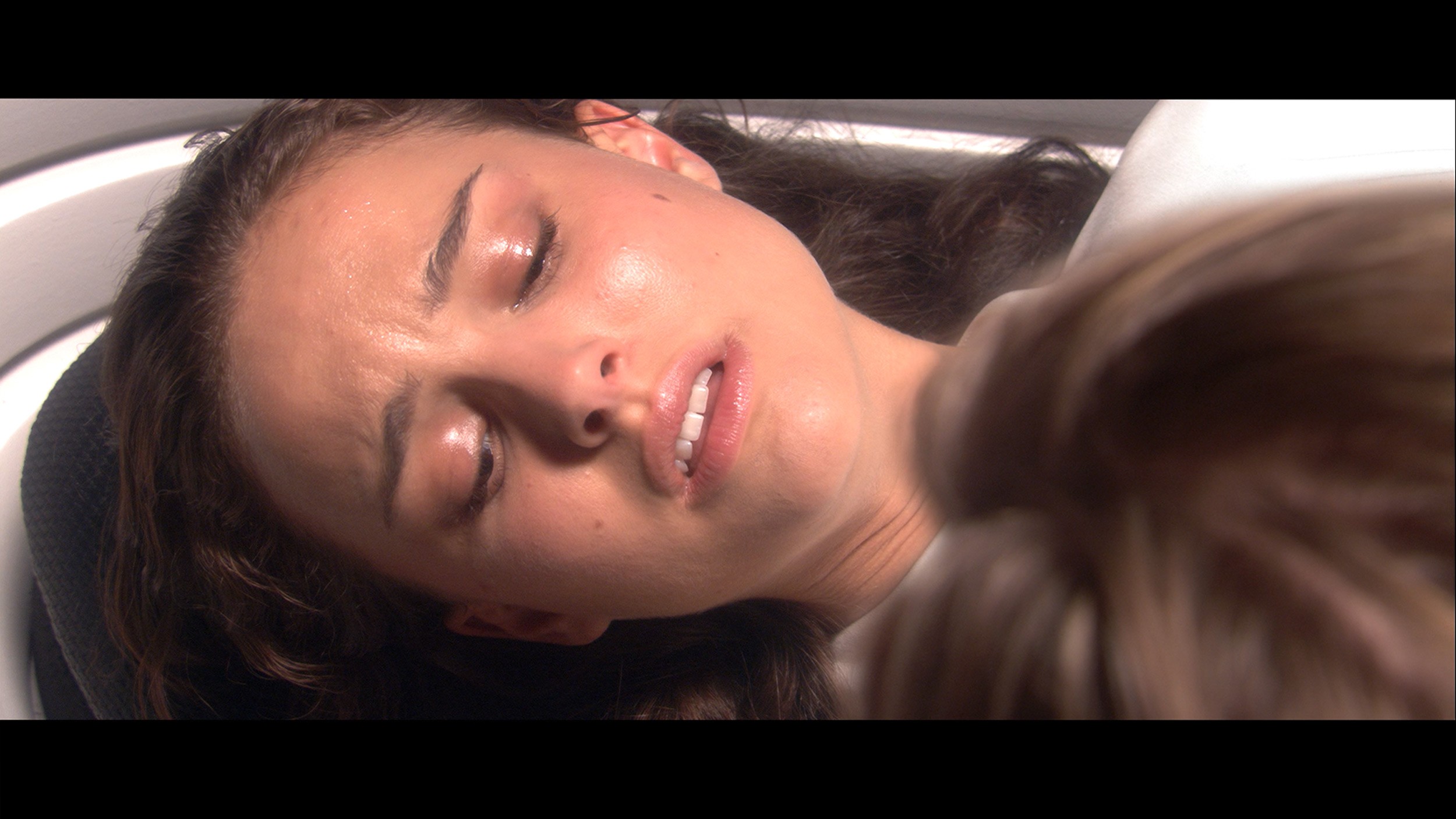
Factory Mode
After calibration
Samsung offers several picture modes in its televisions, but without a doubt, Filmmaker Mode is the one that should provide the most natural representation of content. Unfortunately, as often happens with mass production, the differences between individual units can be quite significant, and our tested model did not escape a few issues.
In the case of SDR content, the white balance leaned heavily towards red, with a slight boost in blue. This effect was particularly noticeable in comparison photos – for example, in a photograph of a boy whose face was unnaturally flushed. The gamma, or brightness characteristic, also did not perform perfectly – the image was slightly brightened, which robbed it of depth.
In 4K HDR content, the white balance was once again dominated by red, this time combined with green. Meanwhile, blue clearly lost intensity, which could easily be seen on the Color Checker palette, where the colours began to "escape" in the wrong direction. The EOTF curve, responsible for brightness in HDR content, showed that the television tended to overly brighten the image, particularly in the darkest elements of scenes.
Overall, while it did not look terrible, it definitely required correction. Fortunately, Samsung offers extensive calibration options, which provides a chance for a significant improvement in picture quality. Therefore, we proceeded with professional calibration to unlock the full potential of this television.
The new feature in TCL TVs for 2025 is the long-awaited Filmmaker mode, which until now has been found in most competing brands. This is great news, as this mode is regarded as the one that best represents the original vision of the creators and is often recommended by enthusiasts of good picture quality. Unfortunately – as is often the case – the mere presence of it does not guarantee perfection. The Filmmaker mode in the TCL C7K is not without its flaws. One could critique the incorrect white balance, particularly the slight dominance of blue, which caused cool, slightly greyish skin tones. But that was not the biggest issue. The main complaint was the excessive brightness exposure, which is clearly visible on the gamma and EOTF graphs. The picture was simply too bright, at times even blown out, which affected not only the richness of the scenes but also the overall viewing experience. Some details were simply lost, and the whole image looked as if someone had overdone the brightness slider a bit. As always – we decided to see what could be squeezed out of this after calibration. And that’s where it started to get really interesting…
Color reproduction after calibration
8.1/10
7.5/10

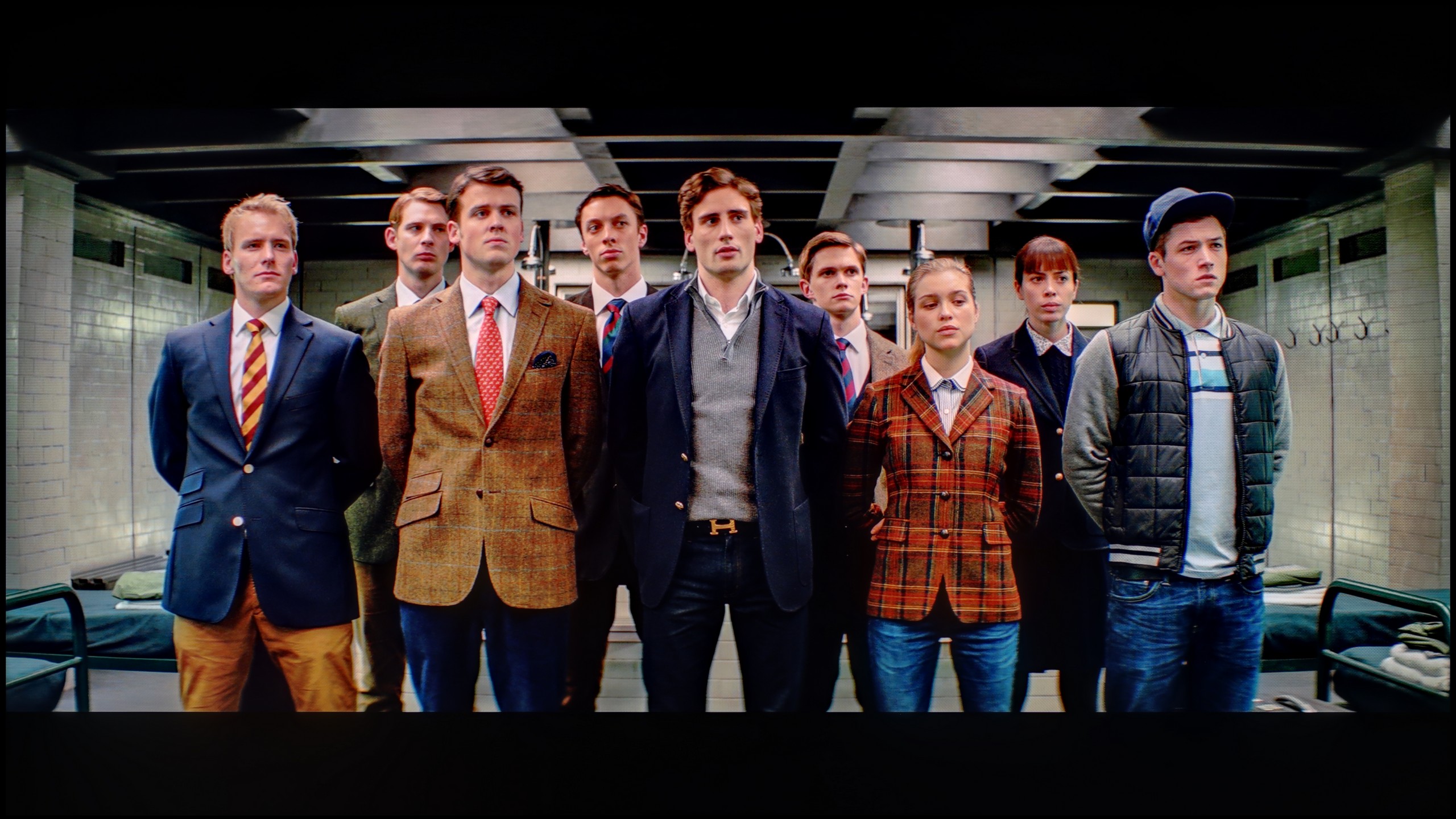


After professional calibration, the Filmmaker Mode showcases its full potential. The white balance in HD content is exemplary – errors at the level of 0.5 indicate almost perfect accuracy in colour reproduction. The image now appears natural, and the colours are exactly as they should be. In 4K HDR content, the effect is not quite as perfect, but it still maintains a really high standard. The colours are vibrant, well-saturated, and the overall image quality is impressive.
So where does the problem lie, given our praise for the colour reproduction? Unfortunately, the entire experience is disrupted by the brightness characteristics. The gamma in HD content looks decent, but in 4K HDR, it’s not as good. The EOTF curve shows that the television excessively brightens certain parts of the image, which is a result of design limitations. The lack of local dimming means that the television is unable to accurately control the differences between the brightest and darkest areas of the screen. This is a barrier that simply cannot be overcome in this model.
Nonetheless, after calibration, Samsung The Frame LS03D offers excellent colour reproduction, particularly in HD content, and the overall look is significantly better than before the settings were adjusted.
After calibration, the TCL C7K put on a really good show, especially when it comes to SDR content. We managed to precisely tune the white balance, colour gamut, and brightness characteristics, resulting in colour errors on the ColorChecker palette dropping below a value of 2. For the uninitiated – this is an almost perfect score, meaning the image is very close to what the creators intended. Unfortunately, things didn’t look as good with 4K HDR content. While we managed to slightly calm down the white balance and correct its previous errors, it still shows that the TV has some "MiniLED traits," especially in brightness management. When we checked how the C7K handles the EOTF curve on actual movie scenes, rather than just synthetic test patterns, it turned out that the screen still has a tendency to slightly brighten the entire image. This affects the overall experience – blacks lose some depth, and the image becomes less contrasty than it should be. Despite these minor shortcomings in HDR content, the overall reception of materials – especially in SDR – is really very good. After calibration, the C7K can display an image that can successfully compete with much more expensive models. Good tuning of colours, natural skin tones, and pleasant brightness make movie sessions and everyday content viewing more than satisfying.
Smoothness of tonal transitions
9.7/10
8.6/10





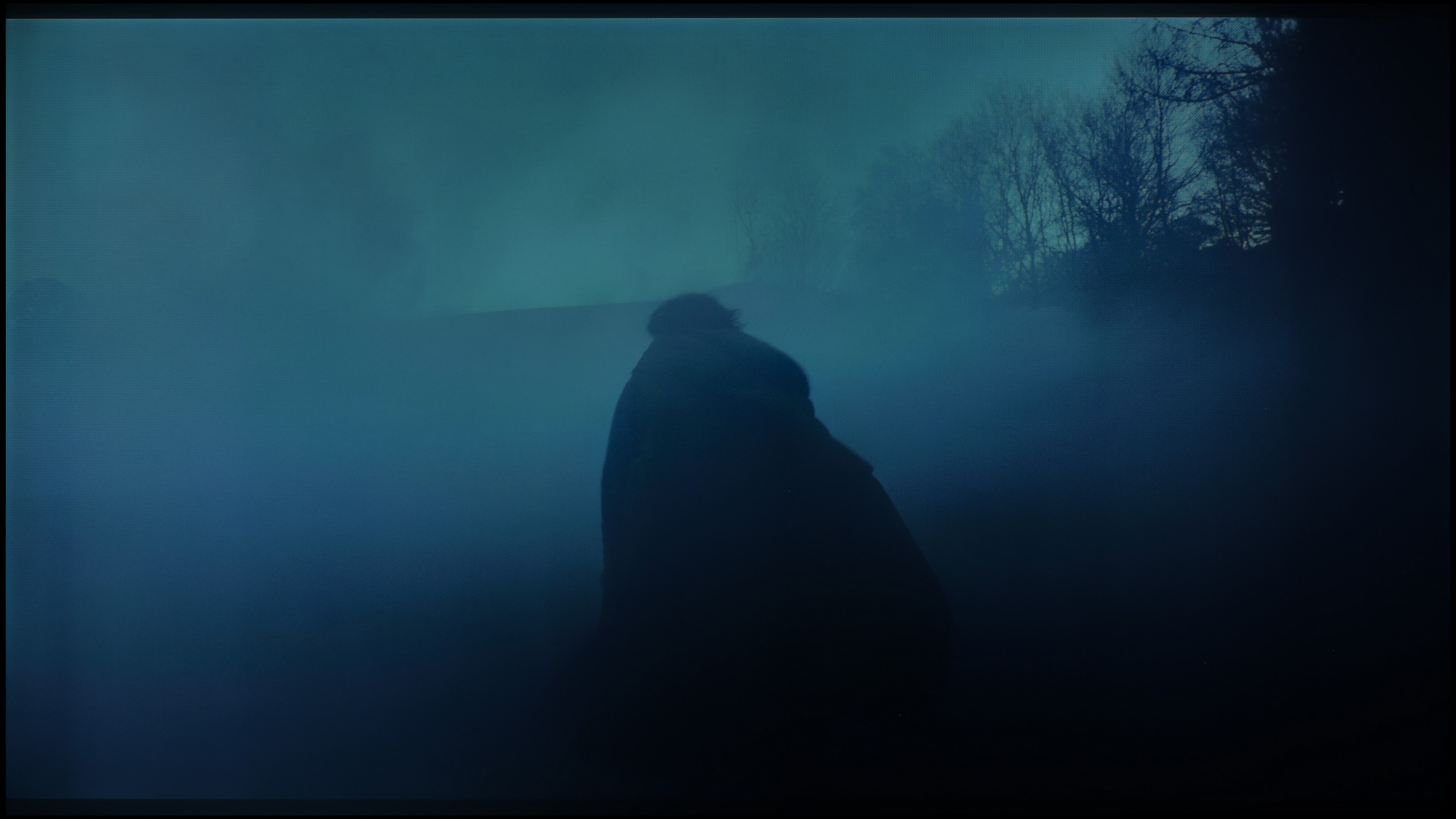






This is one of the best televisions we've had the opportunity to test in terms of the smoothness of tonal transitions. Any potential imperfections are so minor that you really have to strain your eyes to notice them. They are subtle enough that we only deducted a symbolic fraction of points in this category. Undoubtedly, this is one of the greatest advantages of this model. It's possible that such a good effect is partly due to the matte screen coating, which gently masks any irregularities in colour gradation. The smoothness of tonal transitions in Samsung The Frame LS03D is at a level that will satisfy even exceptionally demanding users. Kudos to LS03D!
The TCL C7K performs very well with colour gradation – in most tested scenes, tonal transitions were smooth, and colours blended together without visible edges or an artificial "splotch" effect. In everyday use, it's hard to find any faults – the image looks natural, without jarring transitions or digital artifacts. Some limitations only arise in very dark tones – particularly in a heavily muted grey palette, where the TV may struggle to reproduce an ideal gradation. But this is absolutely understandable, as even many significantly more expensive models in this range simply fail. Fortunately, these situations are rare and do not significantly affect the overall perception.
Image scaling and smoothness of tonal transitions
7.1/10
5.5/10
Smooth transition function

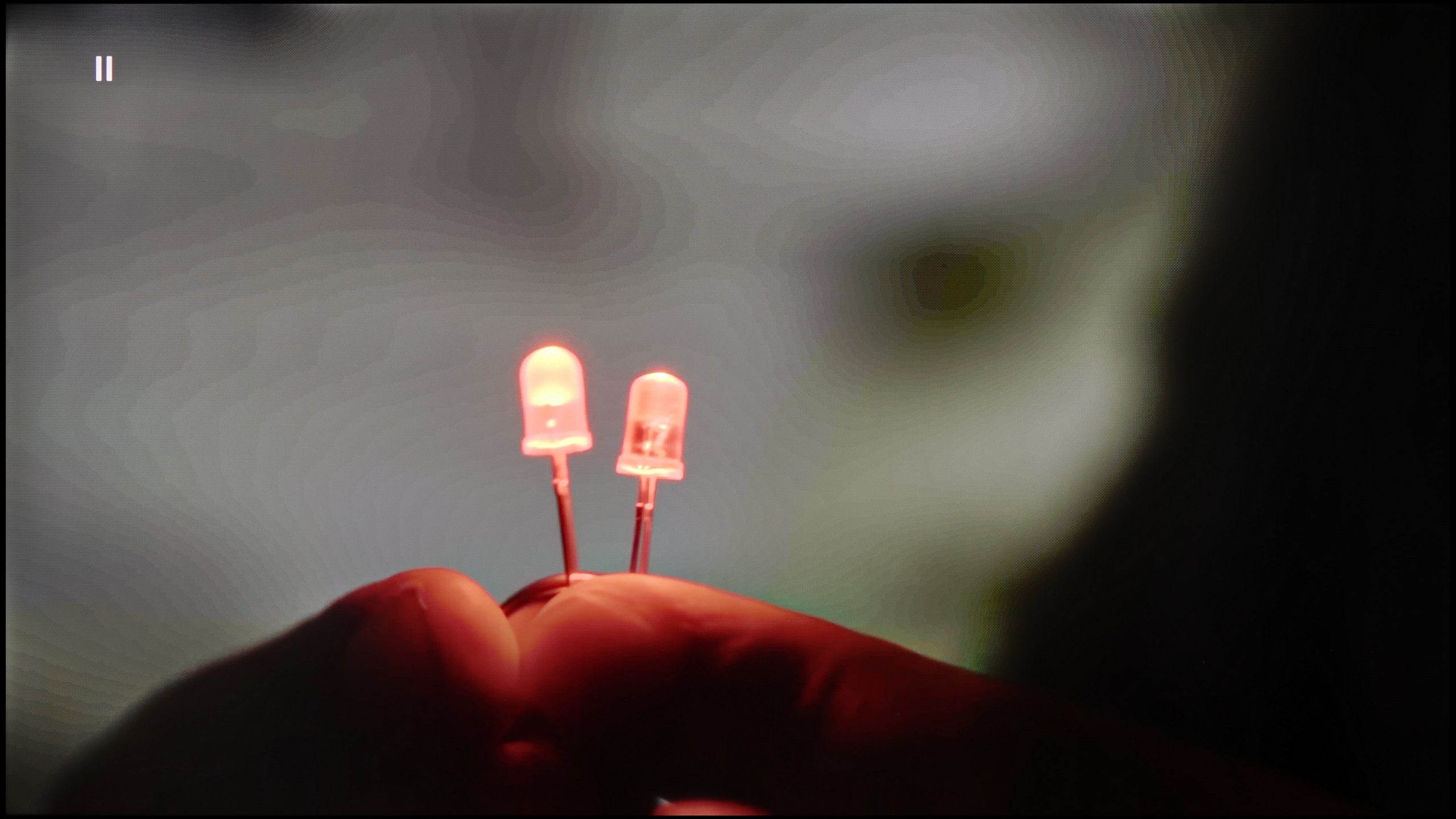
Image without overscan on the SD signal

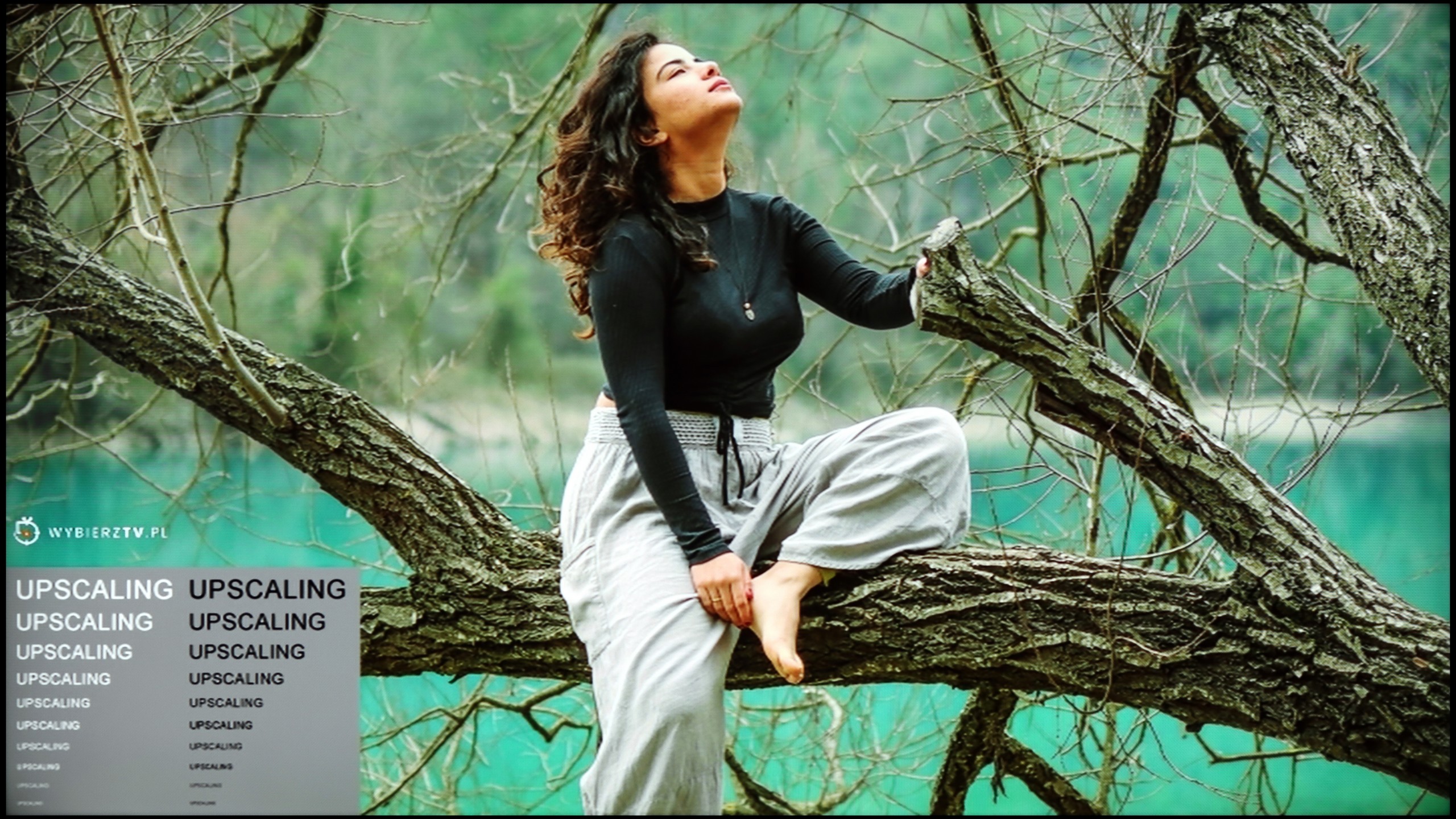
It's time to check how Samsung The Frame LS03D copes with older, lower-quality materials. We already know that the smoothness of tonal transitions is at a very high level, so we were curious to see how the TV would handle smoothing them out.
The noise reduction feature in the “Standard” setting does its job well – tonal transitions are noticeably smoothed out, and the image doesn’t lose too much detail. However, it’s worth noting that this effect also smooths out film grain, so its usage will be a matter of individual preference.
When it comes to image scaling, the TV performed really well too. The tested image came out solid – the model was accurately represented, with clear details. The branches in the background, although slightly frayed in places, generally look natural and do not stand out as a flaw.
TCL C7K comes with a feature that, according to the manufacturer, aims to smooth out unwanted colour transitions – something like a rescue for less successful tonal changes. It's called "Gradual Smoothing" and... well, it sounds ambitious, but in practice, it works very poorly. Regardless of whether we set it to low or high, the difference is minimal. And worse still – the feature can cut out elements from the image that should remain. Fortunately, film grain is left untouched, so at least it doesn't smooth everything indiscriminately, but even so – it's best to just turn this option off.
When it comes to upscaling lower resolution content, it's already better. SD and HD materials look quite decent, although at times we felt that the image loses sharpness and becomes too soft – as if something had taken away its clarity. Fortunately, with very low sources (e.g. 576p), there was no overscan effect, meaning the image wasn't artificially cropped – everything fit on the screen as it should.
Blur and motion smoothness
6.4/10
8.1/10

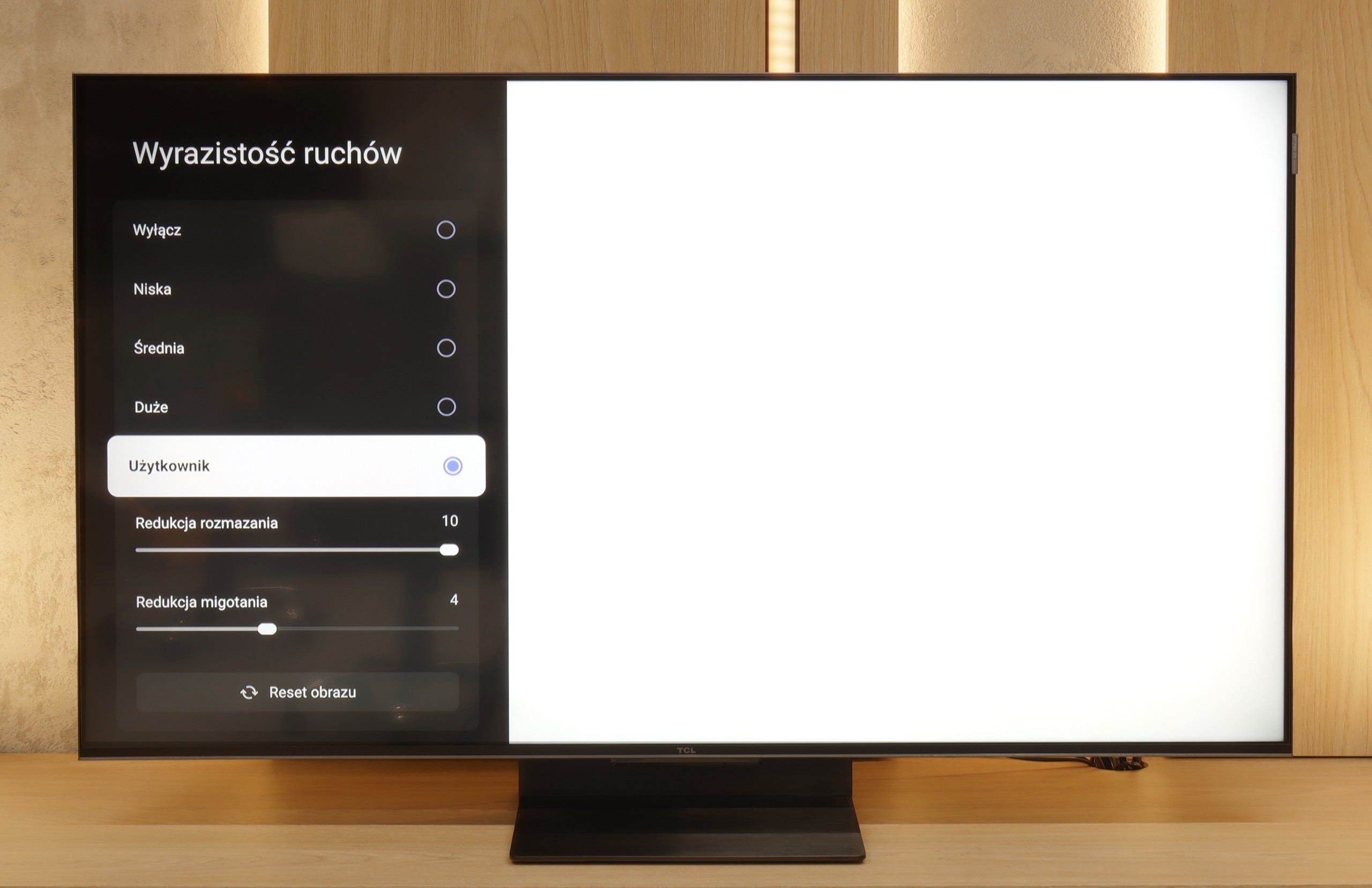
Blur (native resolution, maximum refresh rate):





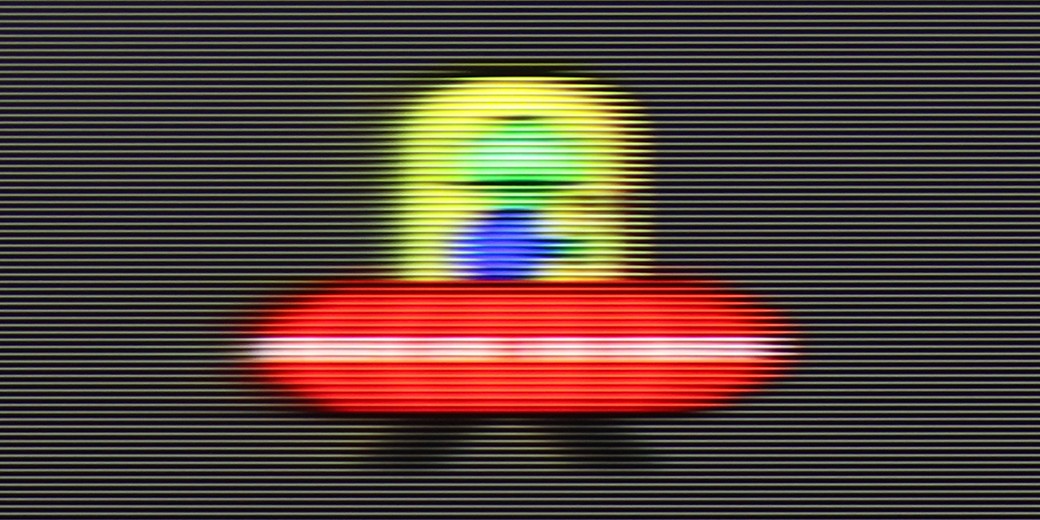
Blur (BFI function enabled):
Image flickers in this mode



Smużenie ():
Smużenie (4K@144Hz):



To start off, it’s worth noting that the model we tested in the 55-inch size, along with the 65, 75, and 85-inch versions, is equipped with a 120 Hz panel. Unfortunately, the 43 and 50-inch variants of this series only offer 60 Hz panels, which is worth considering when making a purchase. In terms of improving motion fluidity, the TV offers a feature called “Image Clarity.” This is a classic motion smoother that gives users the ability to adjust using two sliders:
Blur Reduction – this controls image sharpening during dynamic scenes. The higher the value, the less blurring occurs during fast camera moves or moving objects. However, setting it too aggressively can make the image look unnatural and resemble a “soap opera.”
Judder Reduction – this slider affects the smoothness of frame playback, especially in materials with lower frame rates, such as movies (24 fps). Higher settings can smooth out motion but can also lead to excessive “plasticity” of the image.
Both sliders operate on a scale from 0 to 10, allowing for precise adjustment of the effect to personal preferences. It’s a good idea to experiment with the settings to find the perfect balance between fluidity and a natural look for the image. We recommend setting them as shown in the picture.
TCL C7K handles motion smoothness really well. The panel used in it offers a refresh rate of 144 Hz, which alone suggests that this TV is more than just a regular "60 Hz" panel. Moreover, if we connect the C7K to a computer and set the resolution to Full HD. But we will write more about this in the section for gamers and PC compatibility. Returning to everyday use – both sports and movies look very good here. Thanks to the quick panel and the well-functioning motion smoothening feature, the C7K is great for watching matches as well as for movie screenings. In the menu, we find two sliders – blur reduction and flicker reduction – that allow adjusting the smoothness effect to personal preferences. At lower settings, we get a more cinematic effect, with a slight judder. At higher settings – the image becomes more theatrical, smoothly even to excess. Whatever your taste, everyone can set it to their liking.
Console compatibility and gaming features
8.8/10
9.8/10
- ALLM
- VRR
- VRR range48 - 120Hz48 - 240Hz
- Dolby Vision Game Mode
- Correct implementation of HGIG
- 1080p@120Hz
- 1440p@120Hz
- 4K@120Hz
- Game bar

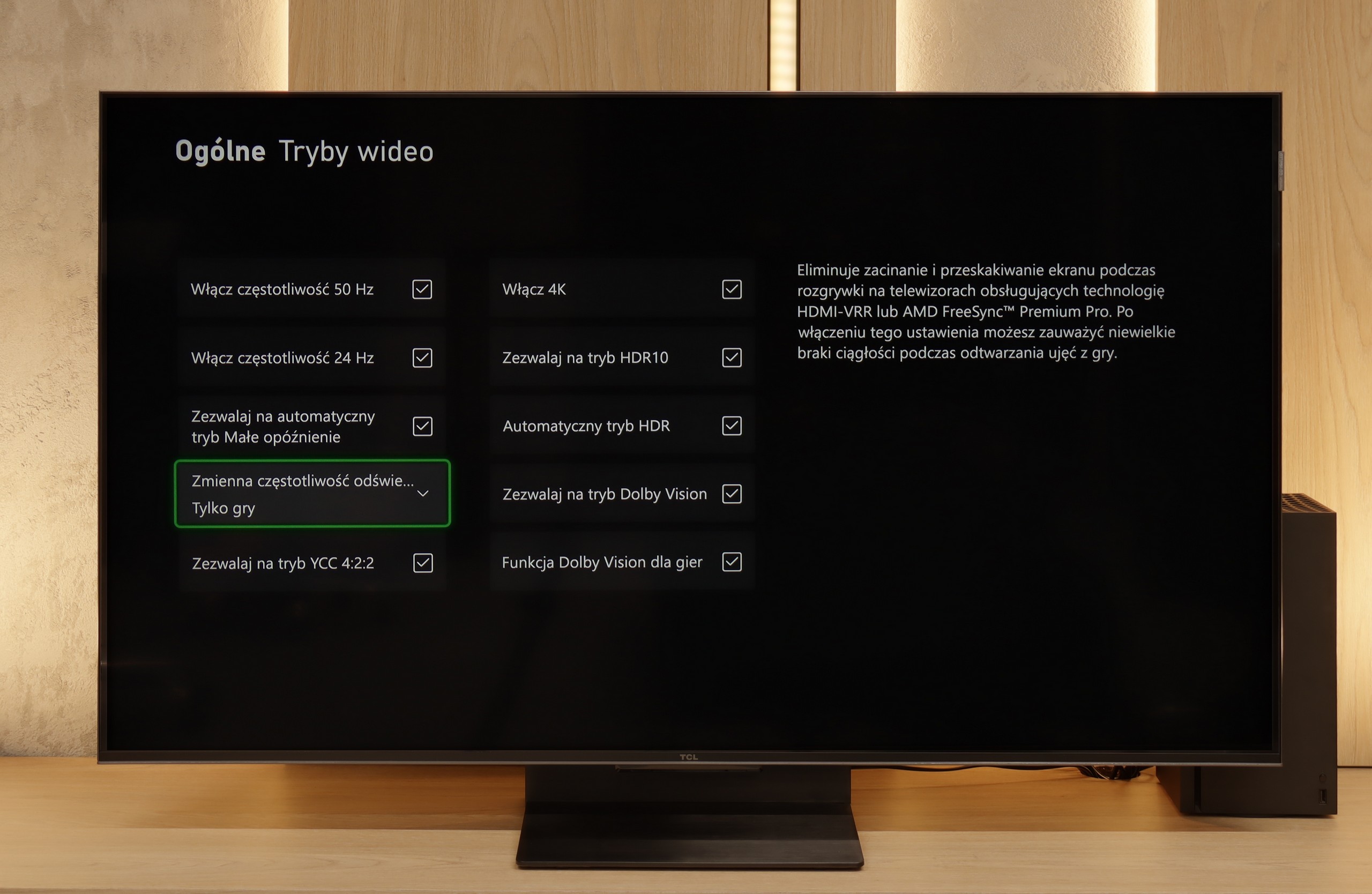

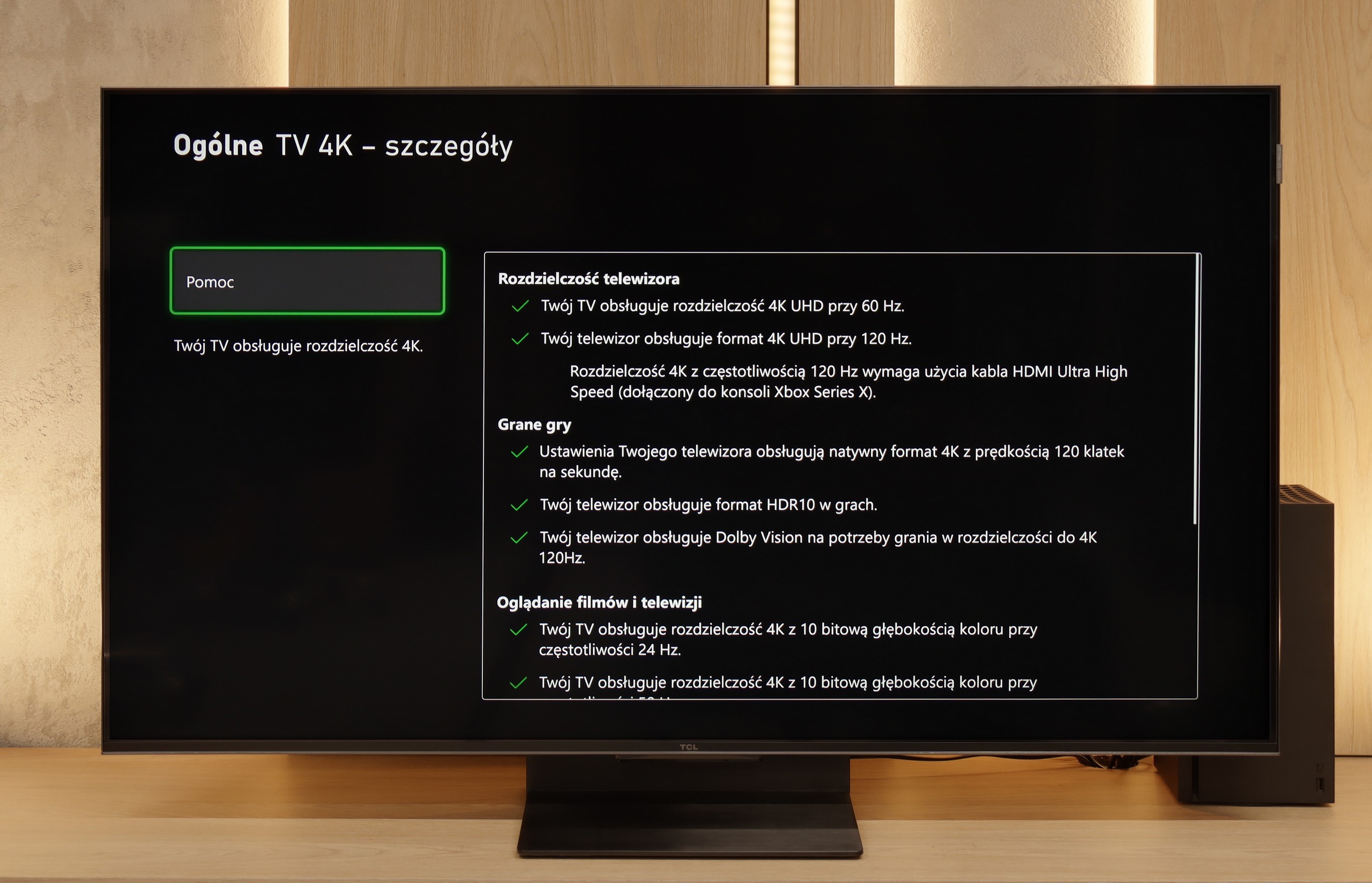

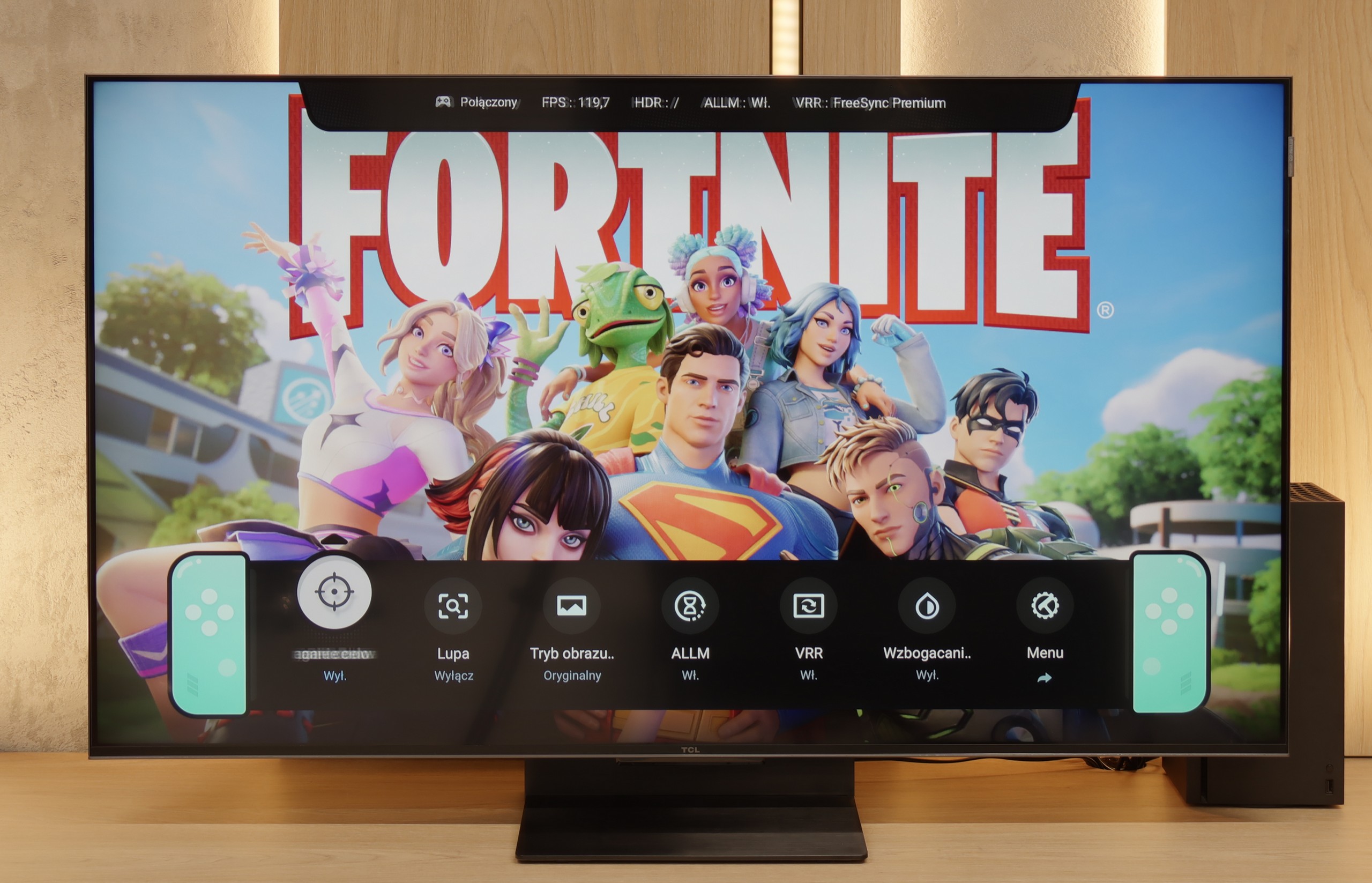

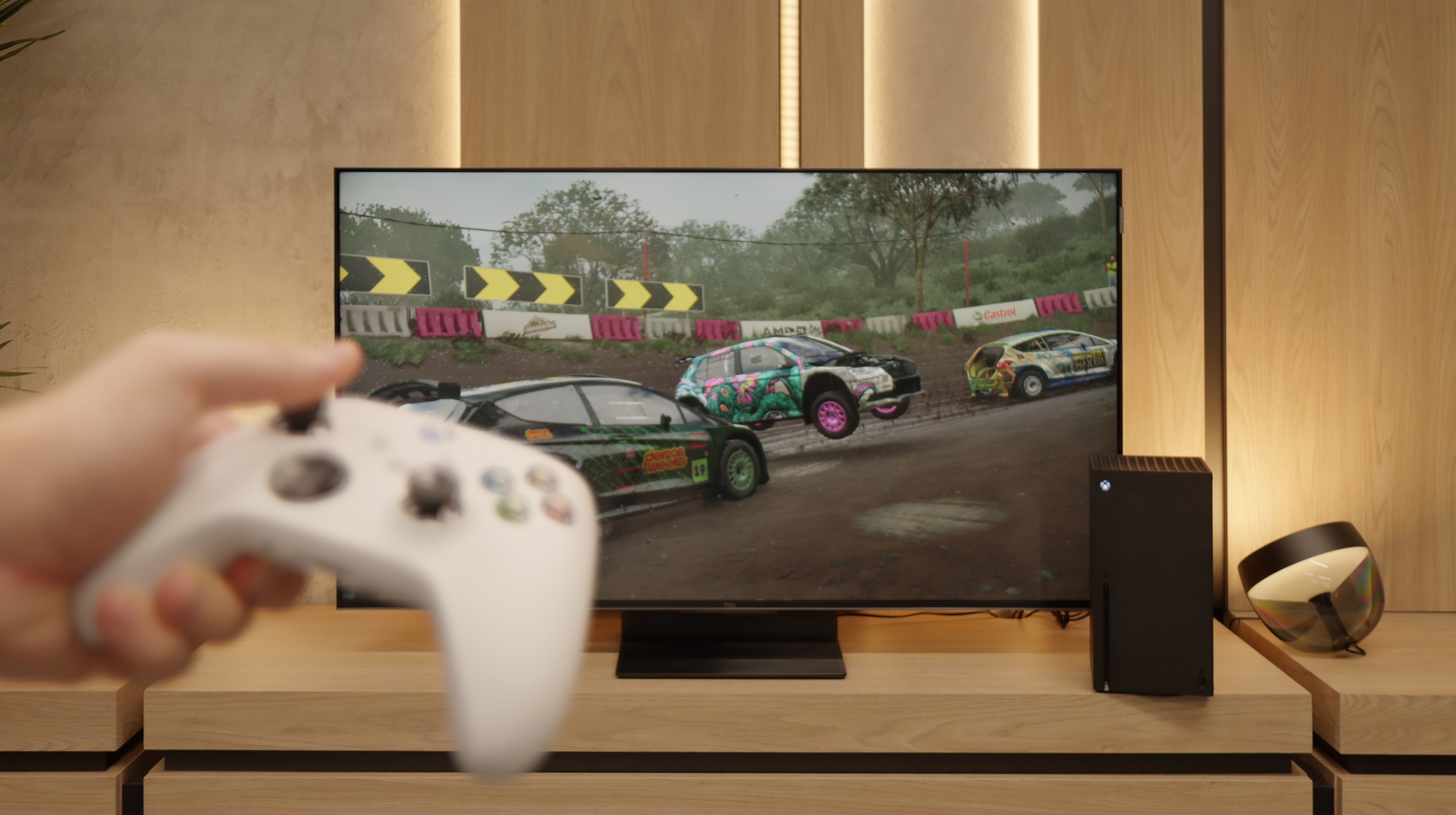
The Frame LS03D in the 2024 version is equipped with four HDMI ports, but only one supports the 2.1 standard with a bandwidth of 40 Gb/s. This is important information if we plan to connect more than one device that requires a 4K@120 Hz signal – for example, two consoles or a console and a gaming PC.
In terms of features for gamers, The Frame truly has a lot to boast about. We have ALLM (Auto Low Latency Mode), VRR (Variable Refresh Rate) and HGiG. It’s worth mentioning that HGiG has been very well implemented here, which is particularly important as the television does not support Dolby Vision in games (which is only available on Xbox consoles). In this case, HGiG turns out to be a better standard for gaming.
Samsung hasn't forgotten about features that enhance the gaming experience. Game Bar is an expanded panel for gamers that allows quick adjustment of screen settings without having to dig through the television menu. We can even change the aspect ratio from 16:9 to the panoramic 21:9, which can be a significant advantage for some gamers.
However, Samsung's biggest ace up its sleeve is the Game Motion Plus feature. This is a special smoother dedicated to games that adds additional frames of animation without significantly affecting input lag. The effect is really noticeable – the image seems much smoother, which will be particularly appreciated by fans of dynamic titles.
In summary – Samsung The Frame LS03D is a television that offers a solid set of features for gamers. Although the limitation to one HDMI 2.1 port may be a downside, the rest of the solutions make gaming on this television a truly enjoyable experience.
TCL C7K is a TV that on paper looks like the dream gear for a gamer – and most importantly, it also holds up in practice. First, the good news: we have two HDMI 2.1 ports with full bandwidth, so we can easily connect both a console and a computer, making use of all their capabilities. The panel itself supports a refresh rate of 144 Hz, which gives a considerable advantage in fast-paced games. On top of that, it comes with a full suite of gaming features: VRR (variable refresh rate), ALLM (automatic low latency mode), and Dolby Vision support in games. There’s also an HGiG mode that provides an HDR effect aligned with the creators' intentions. GameBar, which is an information bar for gamers. It operates quickly, looks clear (like a Nintendo console👌), and displays what matters most: the current frame rate, VRR status, and even HDR parameters.
Input lag
10/10
9.6/10
SDR
HDR
Dolby Vision
When it comes to latency, The Frame LS03D truly impresses. 13 ms with 60 Hz content and 8 ms at 120 Hz are results that will satisfy even the most demanding gamers. Such low values make the reactions to controller movements almost instantaneous. In dynamic games like shooters or racing, every fraction of a second counts – here, Samsung LS03D performs superbly.
When it comes to delays, the C7K doesn’t give any reasons to complain. In games at 120 Hz, the input lag is around 10 ms, which means the TV responds really quickly. And interestingly – even in Dolby Vision mode, the result is very similar, which isn’t always the standard. Good job, TCL. At 60 Hz, the lag does increase a bit, but that’s completely normal and applies to pretty much every TV with 120Hz refresh rates and higher. The important thing is that everything still runs smoothly and there’s no feeling that anything is unresponsive to our actions.
Compatibility with PC
7.6/10
8.4/10

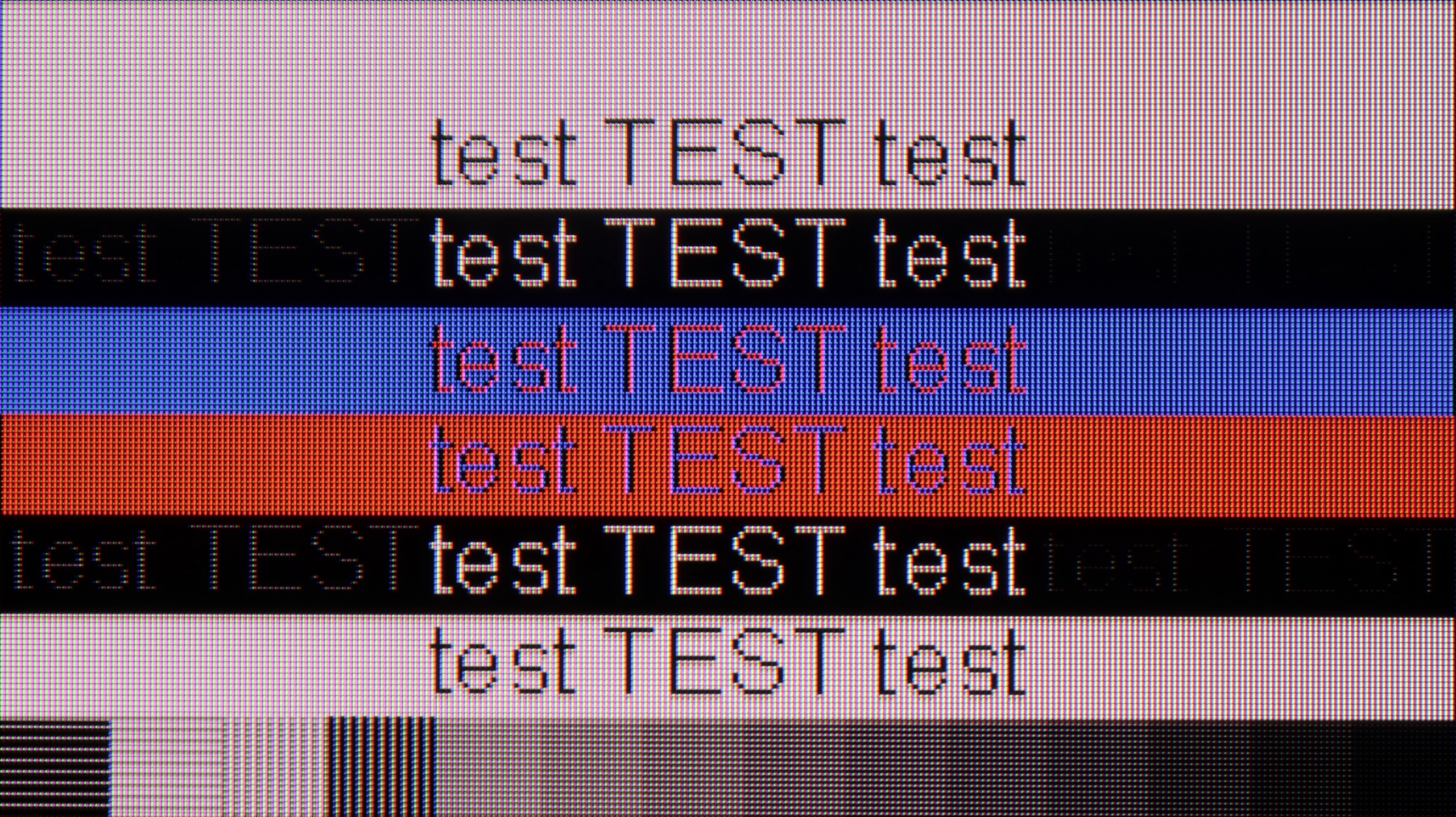
Using a computer on The Frame is truly a pleasant experience. The fonts are clear and well-reproduced thanks to the 4:4:4 chroma support. There's no blurring or fuzziness that often occurs in cheaper TVs. Of course, if someone is really scrutinising small texts, they might notice minimal imperfections, but that’s really a minor issue that doesn’t interfere with daily tasks. It's also suitable for gaming on PC. The 120 Hz panel, support for G-Sync, and really low input lag ensure that games run smoothly and without delays.
If we intend to connect the C7K to a computer – especially for gaming – there's definitely something to play with. We've got 4K at 144 Hz, which already sounds fantastic, but if we lower the resolution, the TV can display even 280 Hz. In e-sports, where every fraction of a second counts, this really makes a difference. On top of that, there's support for G-Sync and FreeSync, so no matter what graphics card we have – the image will be smooth, with no stuttering or tearing.
But if we plan to set the C7K on a desk and use it like a monitor, it's a bit less "rosy." Sure, it supports chroma 4:4:4, so fonts should be sharp, but with very dark letters, there's a slight blurriness and dimming of the edges. It's not something that immediately stands out when gaming or watching, but when working with text – it might be distracting. In everyday use – probably without worries, but if we plan to place a 50-inch screen a metre from our face, it's worth keeping this in mind.
Viewing angles
3.3/10
3/10
The viewing angles on the Samsung The Frame LS03D are average, which is typical for a VA panel. And here lies a bit of a hitch – this television is supposed to serve as a display for images and artworks, which are not always viewed straight on. When viewed at an angle, colours begin to lose their intensity, and blacks turn into shades of grey. It isn’t a level that completely ruins the viewing experience, but if the television is set up in a spot where it will often be watched from the side, the effect may be noticeable. It’s a shame, because better viewing angles in a television designed for such a purpose would be a great advantage.
There are no surprises here – the C7K has classic viewing angles for a VA panel. That is: we sit directly in front – it's fantastic. Colours look good, contrast is strong, everything is in place. But just shifting slightly to the side makes it worse – the image loses saturation, blacks go grey, and the overall impression diminishes somewhat. So if we're planning to watch together with a few people or have a couch that takes up half the living room – it's worth seating everyone more centrally. You can watch from the side, but don’t expect miracles – it's simply a characteristic of the VA panel.
TV efficiency during daytime
6.5/10
6.4/10

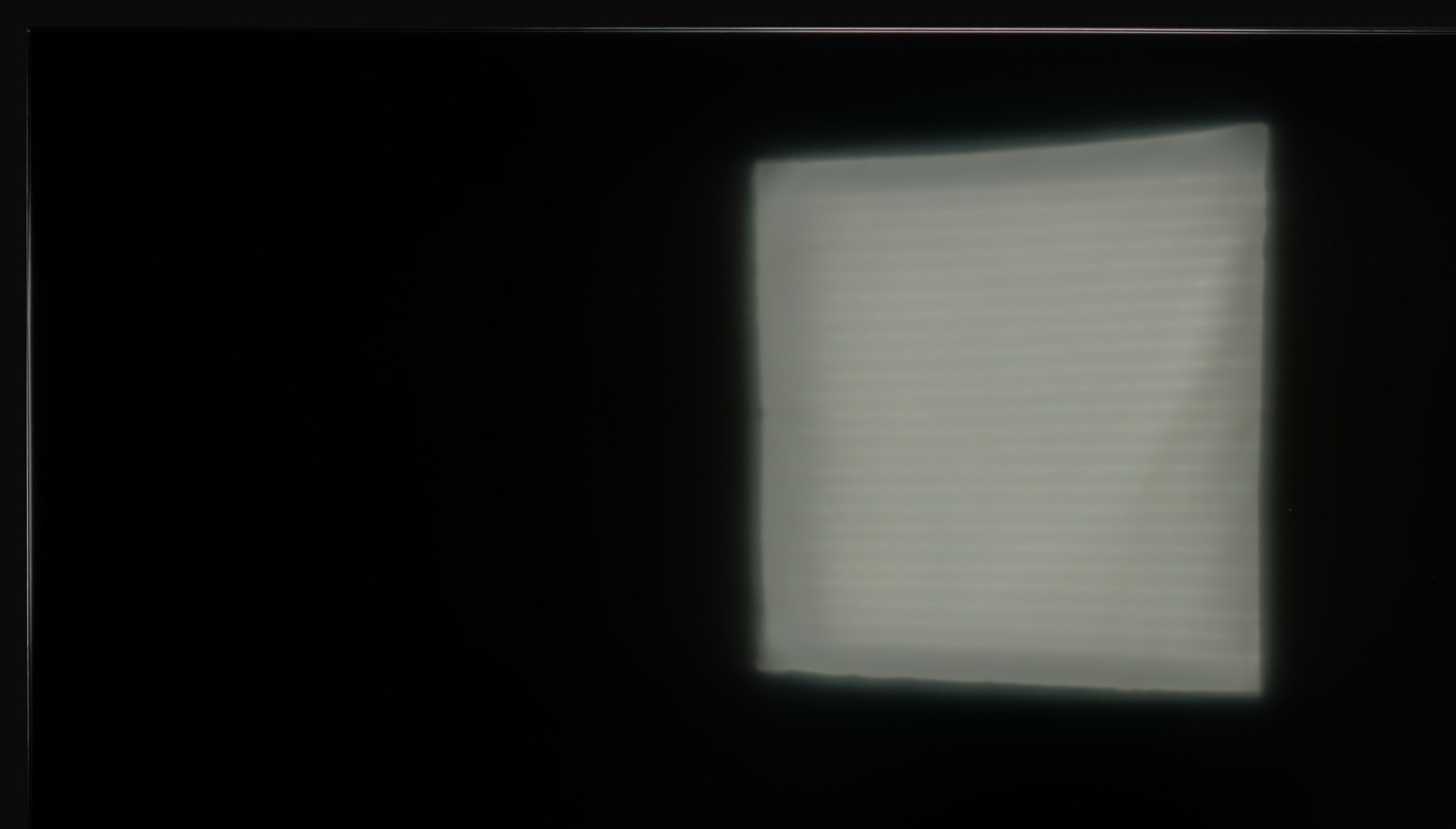


Matrix brightness
Average luminance SDR
TCL C7K / QM7K 55"-85": 529 cd/m2
Samsung The Frame LS03D : 645 cd/m2
Samsung The Frame has been equipped with a matte panel that effectively manages to reduce direct light reflections. This means that even in a brightly lit room, the image remains clear, and reflections do not interfere with viewing. Of course, as is often the case with matte finishes, there are trade-offs – colours lose some of their intensity, and black appears more washed out during the day. Fortunately, the television compensates for this with a brightness level of 650 cd/m². This ensures that the image is bright, sharp, and easily visible even in a well-lit room.
Fortunately, the TCL C7K performs quite well in a bright room. The screen has a satin finish, which effectively reduces reflections and means that even on sunny days we don't have to worry about reflections from lamps or windows. Importantly, the colours maintain their intensity and don't wash out as can happen with weaker matte panels. As for brightness, the average for content like YouTube or regular television is a bit below 500 nits. It's not a record-setting result – for example, the MQLED85 (C765) performs better in this regard. However, for everyday viewing during the day, it should work without major issues, as long as we don't plan to place it opposite a south-facing window without curtains.
Details about the matrix
Subpixel Structure:

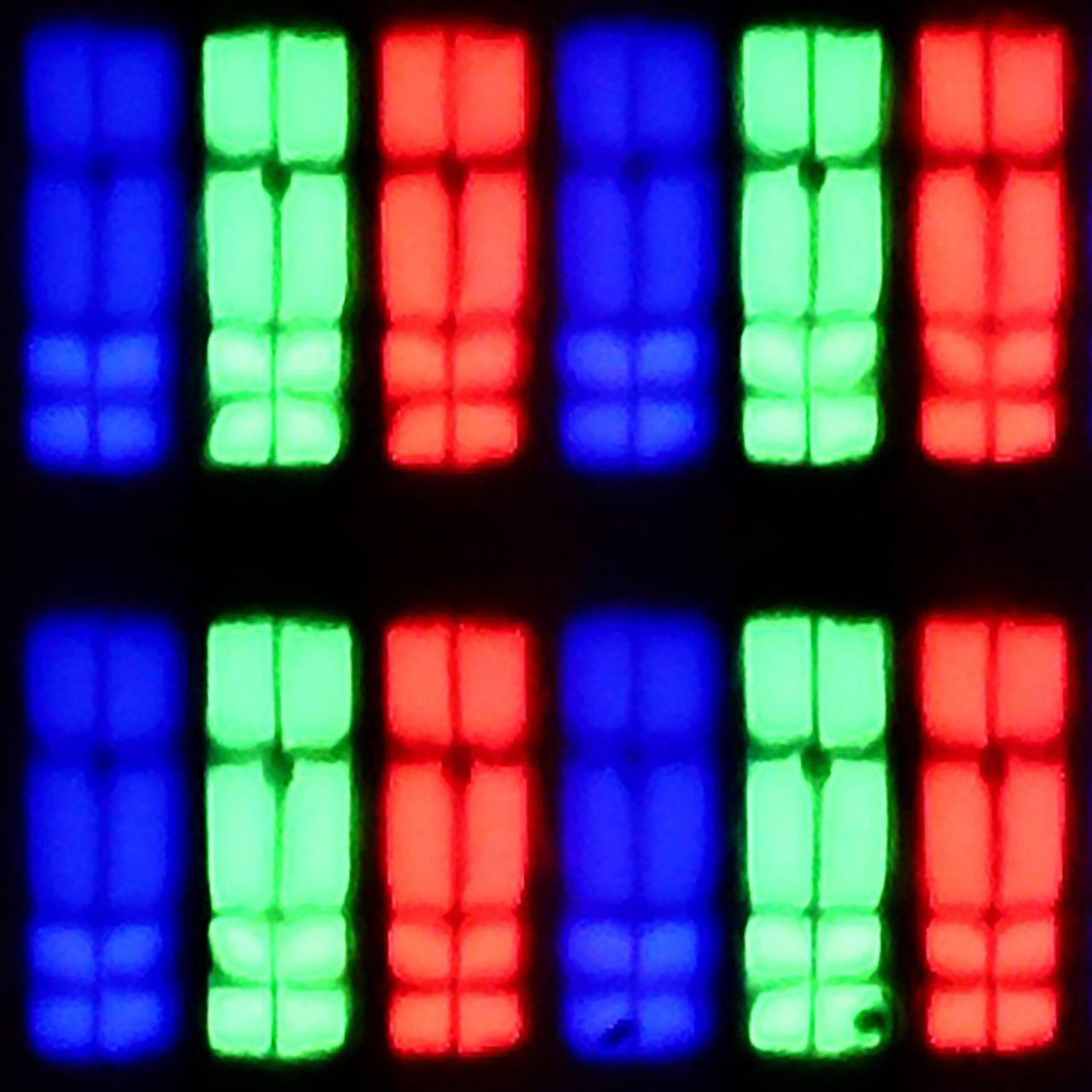
Panel uniformity and thermal imaging:

Samsung The Frame LS03D
TCL C7K / QM7K 55"-85"
TV features
7.8/10
7.3/10
- HDMI inputs3 x HDMI 2.0, 1 x HDMI 2.1 40Gbps2 x HDMI 2.0, 2 x HDMI 2.1 48Gbps
- OutputsToslink (Optical audio), eARC (HDMI), ARC (HDMI)Toslink (Optical audio), eARC (HDMI), ARC (HDMI)
- Network InterfacesWi-Fi 2.4GHz, Wi-Fi 5GHz, Ethernet (LAN) 100MbpsWi-Fi 2.4GHz, Wi-Fi 5GHz, Ethernet (LAN) 100Mbps
- TV receptionDVB-T, DVB-T2, DVB-S, DVB-S2, DVB-CDVB-T, DVB-T2, DVB-S, DVB-S2, DVB-C
Classic features:
- Recording to USB (terrestrial TV)
- Recording programming
- Picture in Picture (PiP)
- RF remote control (no need to aim at the screen)
- Backlit remote control
- Teletext
- Audio only mode
- Bluetooth headphones support
- Simultaneous Bluetooth headphones & TV audio
Smart features:
- AirPlay
- Screen mirroring (Windows Miracast)
- Voice search
- Voice search in native language
- Ability to connect a keyboard and mouse




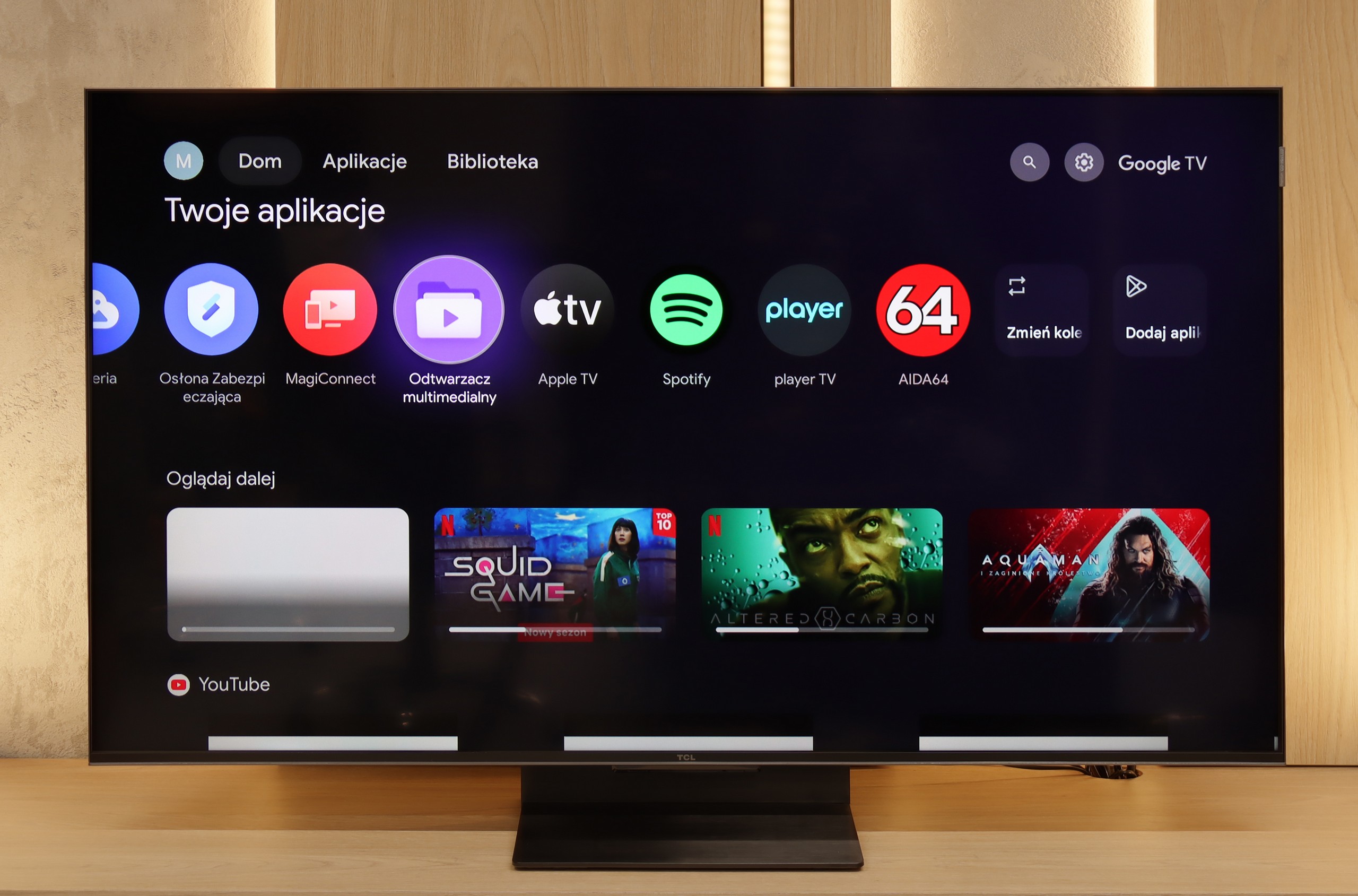
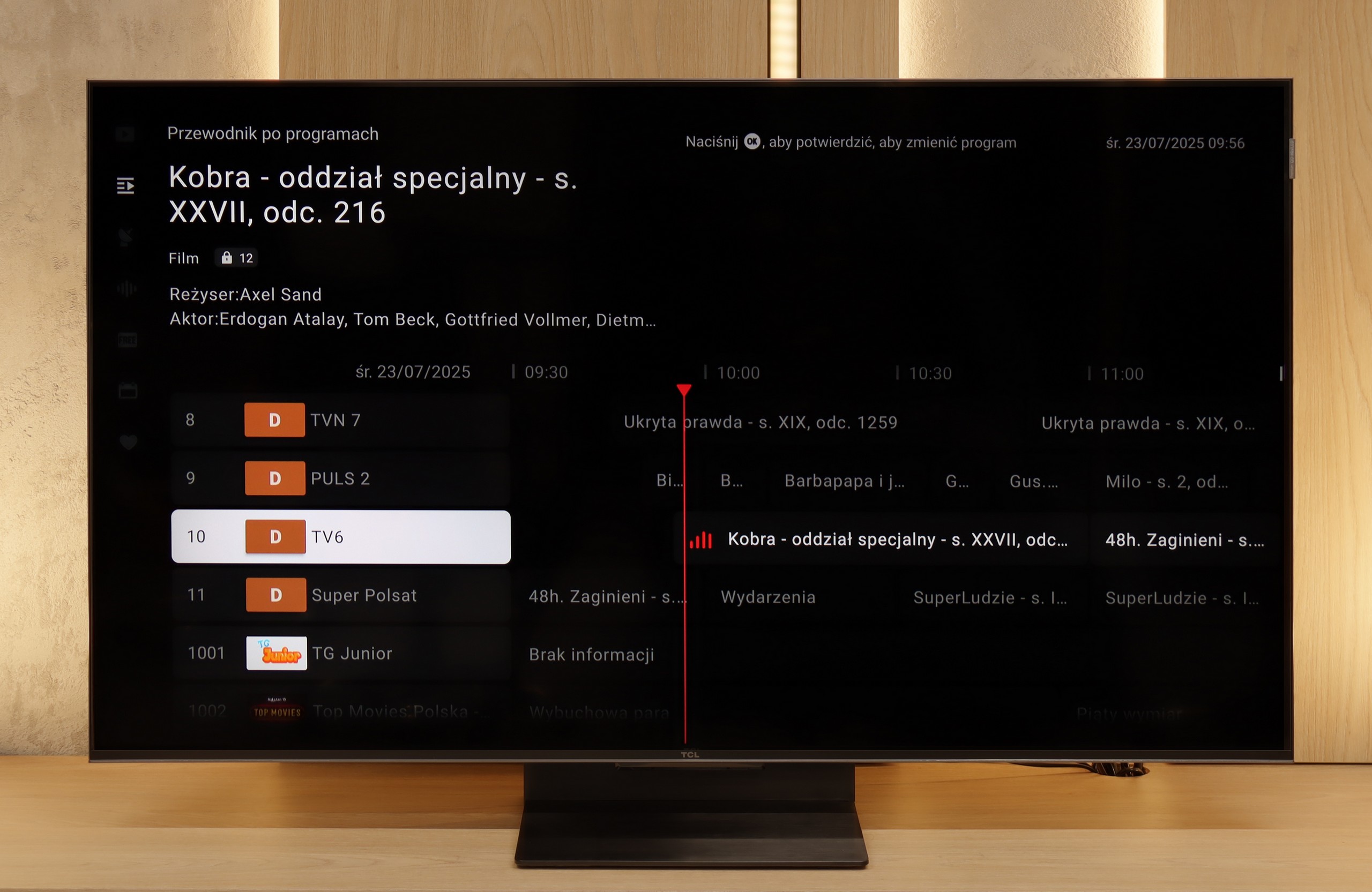
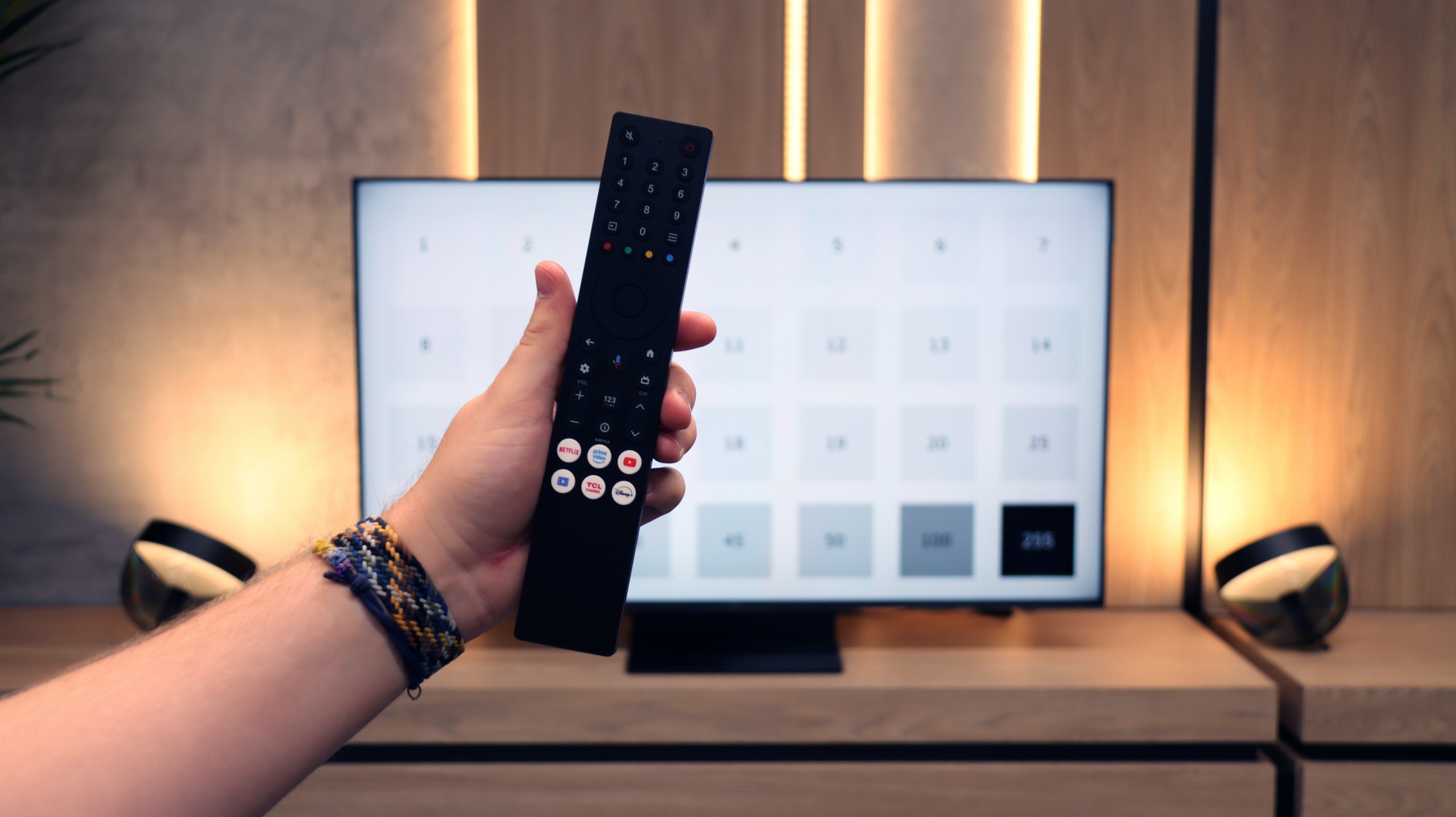
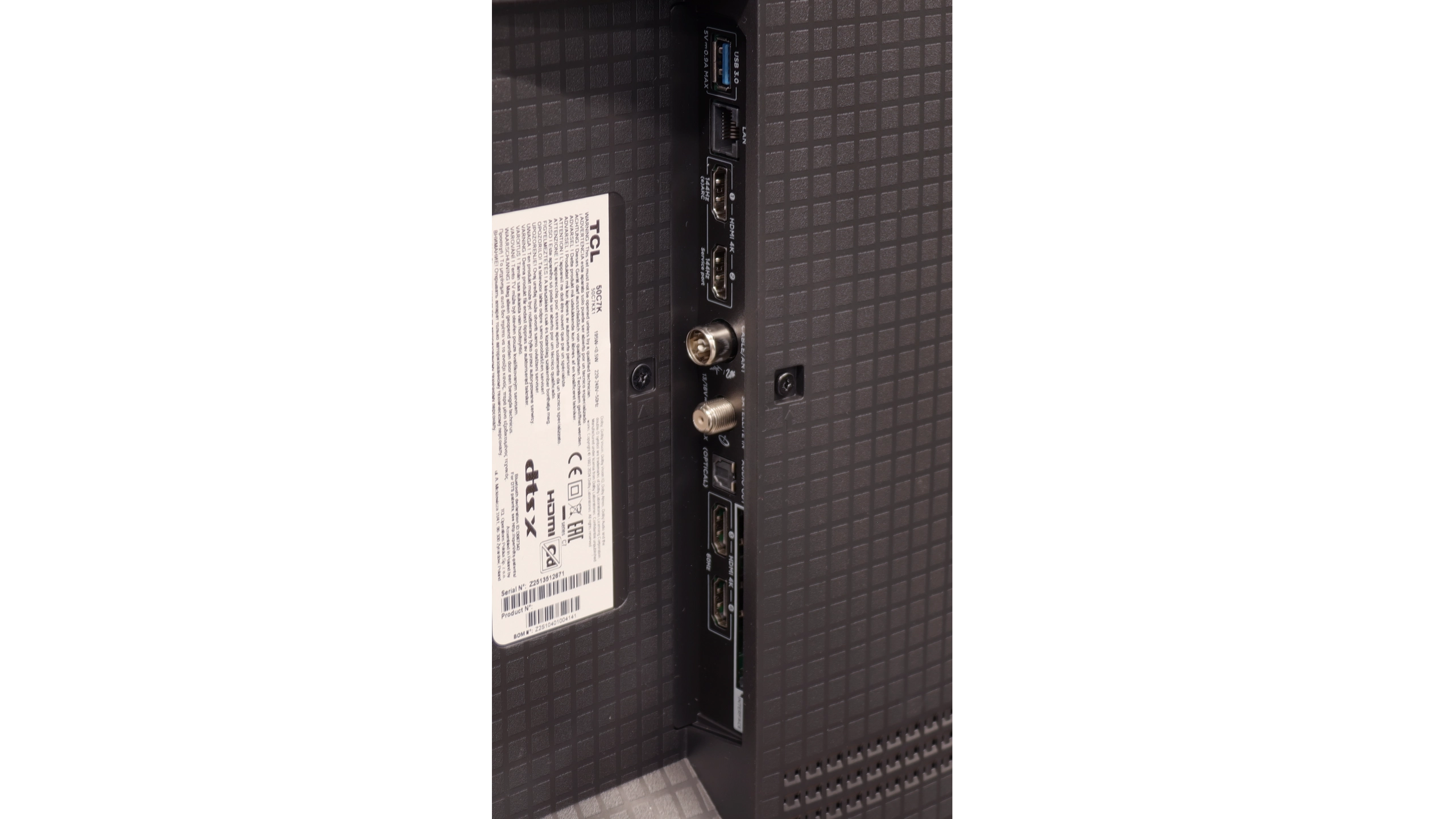
Samsung The Frame LS03D is a television that stands out from other models and is difficult to describe in a conventional way. Of course, it has all the standard Smart TV features thanks to the Tizen system. The system is responsive, comprehensive, and offers a wide selection of applications. The remote control supports voice commands in Polish, and we can connect additional devices via Bluetooth – just like in many other televisions. But that's not the essence of this model.
The biggest strength of Samsung The Frame is its design. The "Art" mode allows you to display thousands of high-resolution images, which, combined with the matte screen, look truly exceptional. The effect is surprisingly realistic and hard to compare to any other television.
The frames may not be the thinnest on the market, but they can be customised in terms of colour and style to perfectly match the interior. (Sold separately) And although the frames themselves are not ultra-thin, the entire construction is sleek and elegant. The wall mount, which is included (valued at about 400 PLN), is also worth noting. It allows the television to be mounted almost flush against the wall, with no gap, which further emphasises the "picture" effect.
And what about the cables? Samsung thought of that as well. The Frame is equipped with a One Connect module – this is an external box that connects all devices. Only one nearly invisible cable goes to the television, which carries both the signal and power. The box can be easily hidden in a cabinet or behind furniture, ensuring that nothing disrupts the aesthetic of the interior.
Samsung The Frame LS03D is more than just an ordinary television – it is a thoughtfully designed decorative element that combines modern Smart TV functionality with exceptional design and practical solutions. Although it lacks typical functions such as USB recording or PiP, it is not a model created with a conventional approach to television in mind. LS03D the frame is a television that is easy to love for its innovation, originality, and how well it fits into any interior.
SmartTV: GoogleTV
The greatest strength of the TCL C7K in everyday use is undoubtedly the Google TV system. Thanks to it, we have access to an almost endless library of applications, including some more niche ones that are often unavailable on other platforms. The built-in Google Assistant understands Polish, so we can easily ask what’s on TV, what the weather is like, and even give a few voice commands to control the television. The presence of Chromecast and AirPlay, which work smoothly and make life easier, is also a plus.
Useful features
However, the classic features are a bit lacking. Of course, we find the basics here – teletext, EPG or the ability to connect headphones – but that’s pretty much it. There’s a lack of USB recording functions and a picture-in-picture (PiP) mode, which can sometimes still be found with competitors. It's also worth remembering that the Google TV version from TCL can sometimes have strangely translated menu items or minor interface bugs. These are not things that hinder everyday use, but those sensitive to details may notice them.
Playing files from USB
9.1/10
9.2/10
Supported photo formats:
Maximum photo resolution:

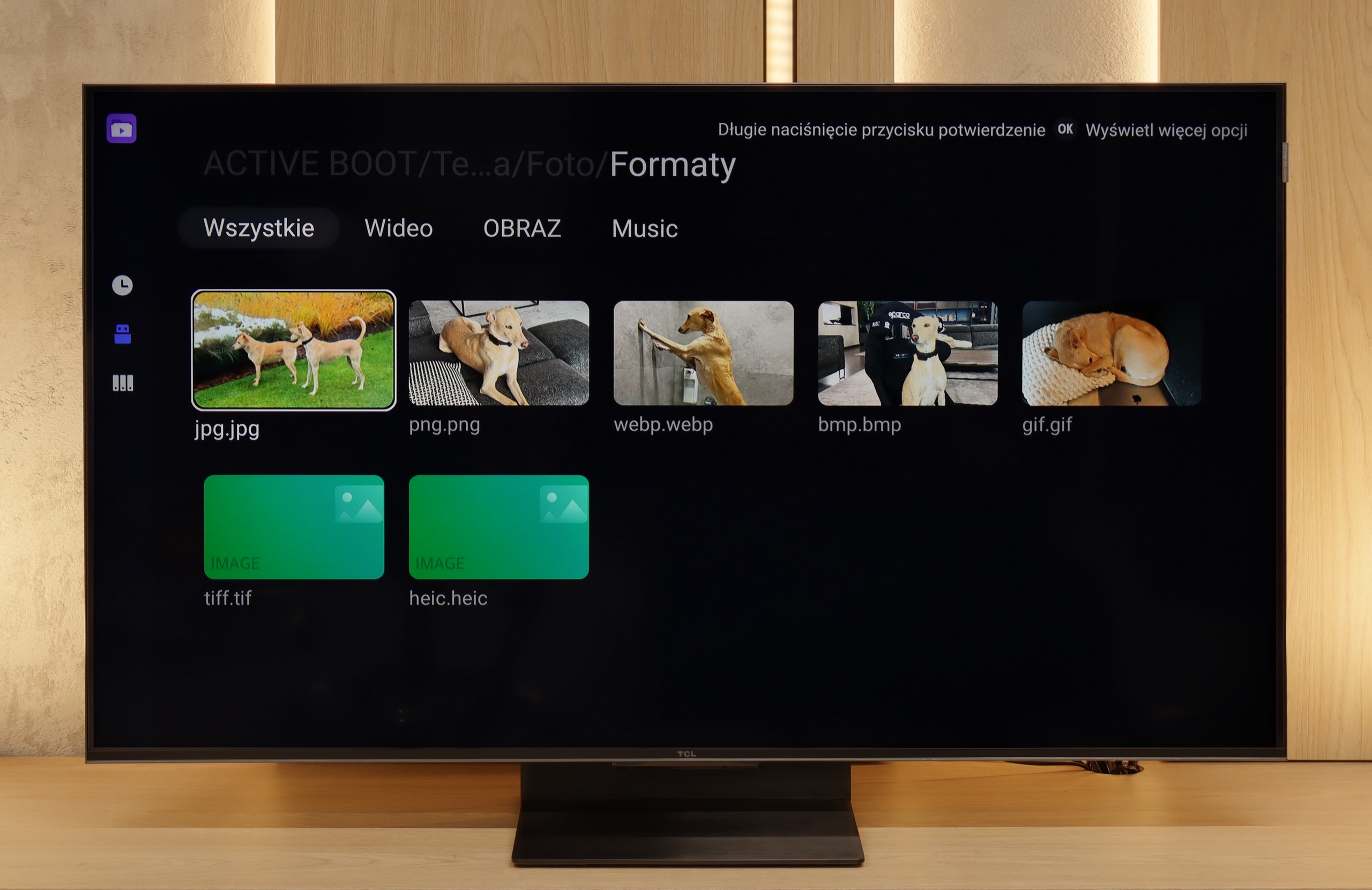
The built-in media player in Samsung The Frame handles most popular video and audio formats without any significant issues. Video files, even those with our added subtitles, play smoothly and without interruptions. The same goes for audio files – there are no major surprises here either. The handling of photo formats is somewhat less impressive. The built-in player has certain limitations and does not support all possible types of graphic files. However, nowadays most people use wireless photo transfer, so for many users this won't be a major problem.
The built-in file player in the TCL C7K performs really well. It supports most popular audio and video formats, so if we want to quickly throw something from a USB stick and play it – there shouldn't be a problem. Of course, as is often the case, there might be some minor shortcomings – not every exotic codec will work (Apple's HEIC), not all subtitles will be perfectly synchronised (txt.). However, this is where the biggest advantage of this TV comes in, namely Google TV. With access to the Google Play Store, we can easily install an alternative player, such as VLC, and then no files will be a concern for us.
Apps
8.7/10
9.6/10














































Sound
5.8/10
7.7/10
- Maximum volume--
- Dolby Digital Plus 7.1
- Dolby True HD 7.1
- Dolby Atmos in Dolby Digital Plus (JOC)
- Dolby Atmos in Dolby True HD
- DTS:X in DTS-HD MA
- DTS-HD Master Audio
The sound on Samsung The Frame is… well, quite average. The slim design of the TV, while impressive, doesn’t leave much room for decent speakers. As a result, the sound is flat and lacks dynamics – just like most TVs in this category. Samsung is clearly aware of this, as they have a special S series of soundbars designed specifically for their “lifestyle” TV line, which includes The Frame.
In the larger versions of the C7K (from 55 inches and above), the sound makes an even better impression than in the smallest 50-inch variant. This is due to the greater number of built-in speakers and additional channels, which allow for a fuller, more spatial sound. The bass becomes clearer, dialogues gain clarity, and the film effects can really fill the room.
It's worth mentioning the collaboration between TCL and Bang & Olufsen, which appeared in the 2025 models. Even if we don't have a hundred percent certainty that original Danish company drivers are working inside, the final effect is surprisingly positive. For a television without an additional soundbar, the larger C7K models offer sound that can be enjoyed even during longer movie sessions.


